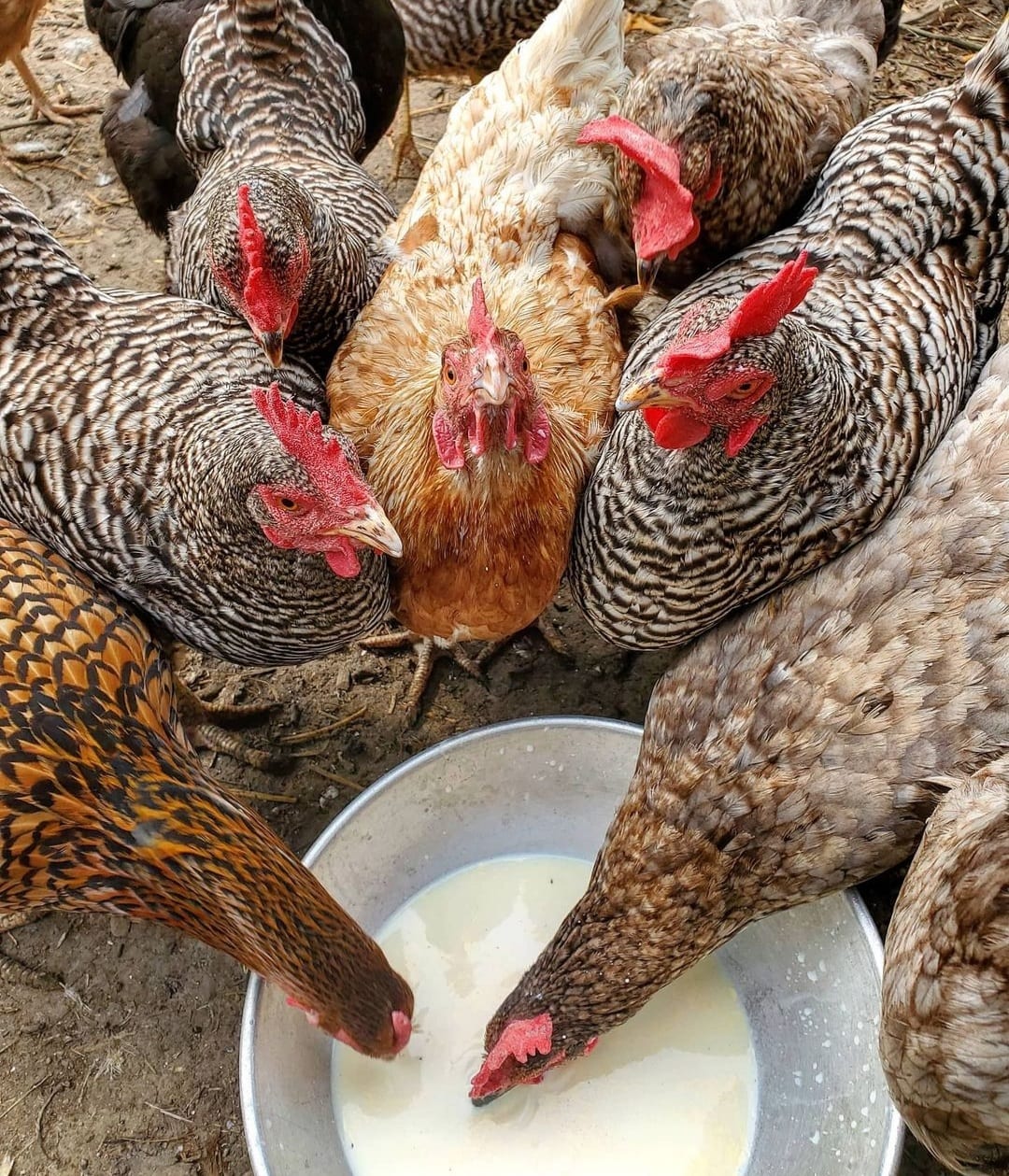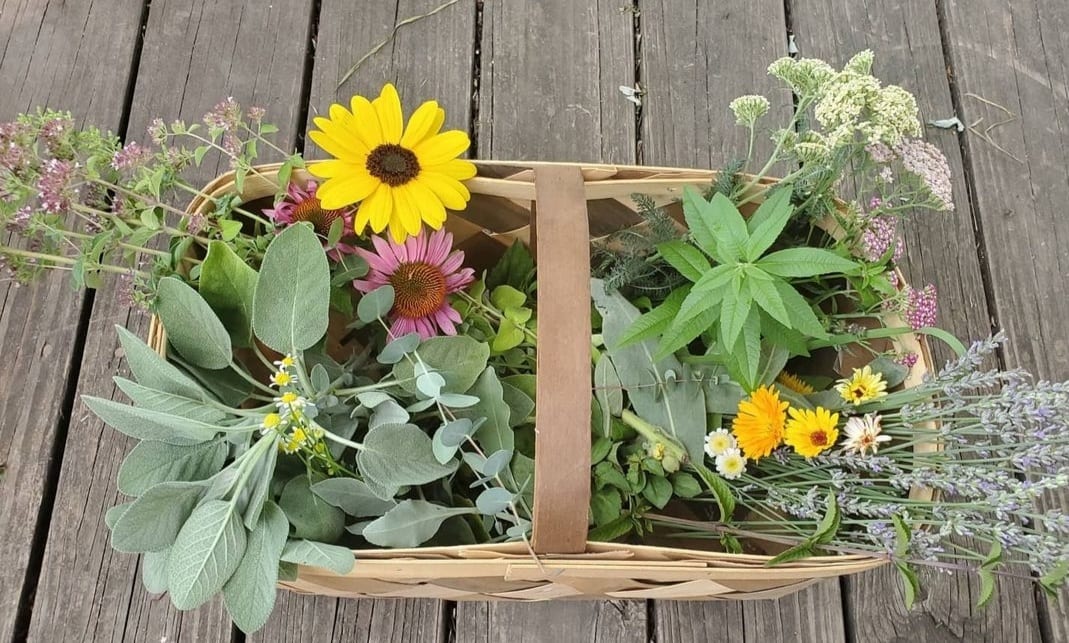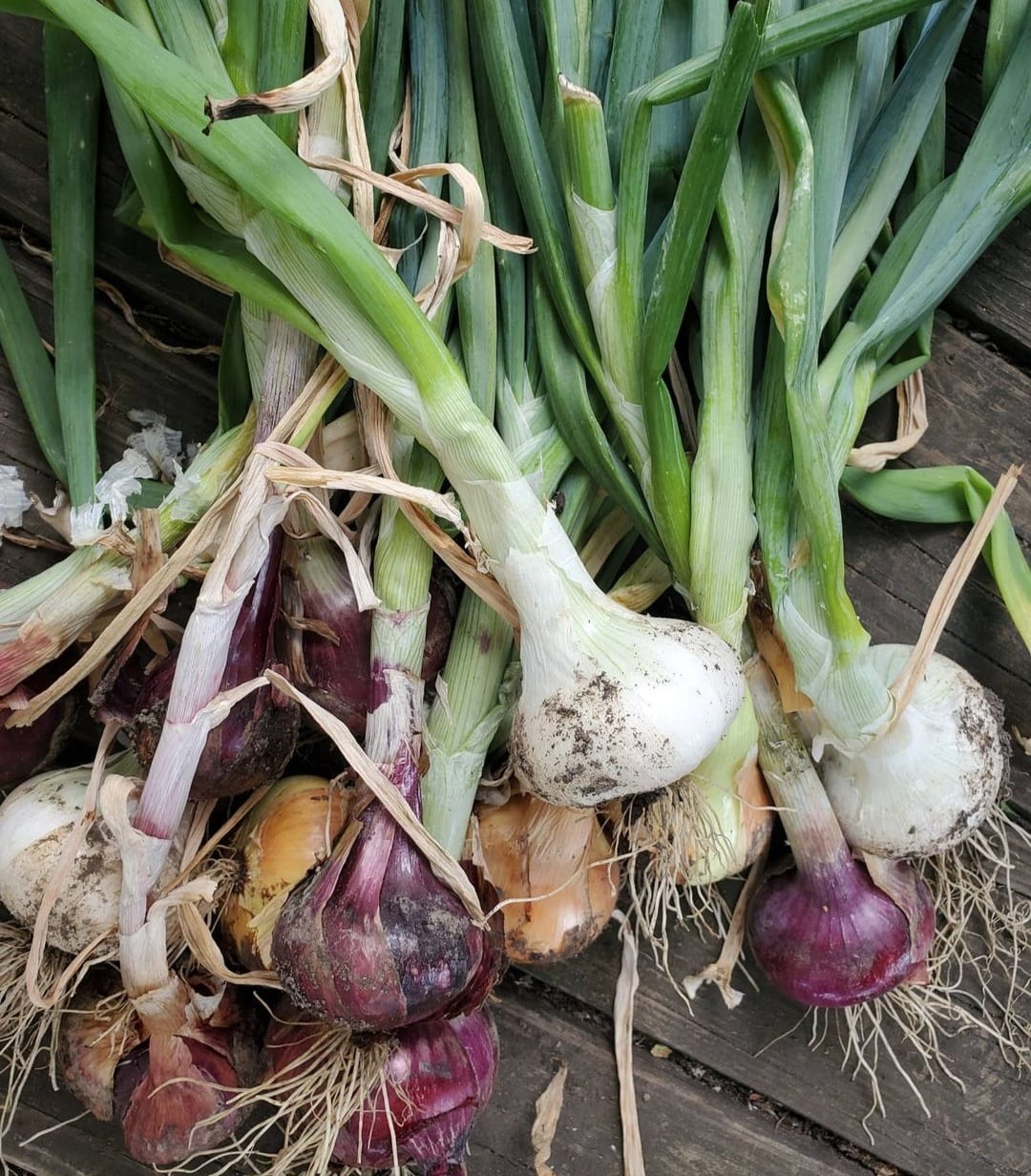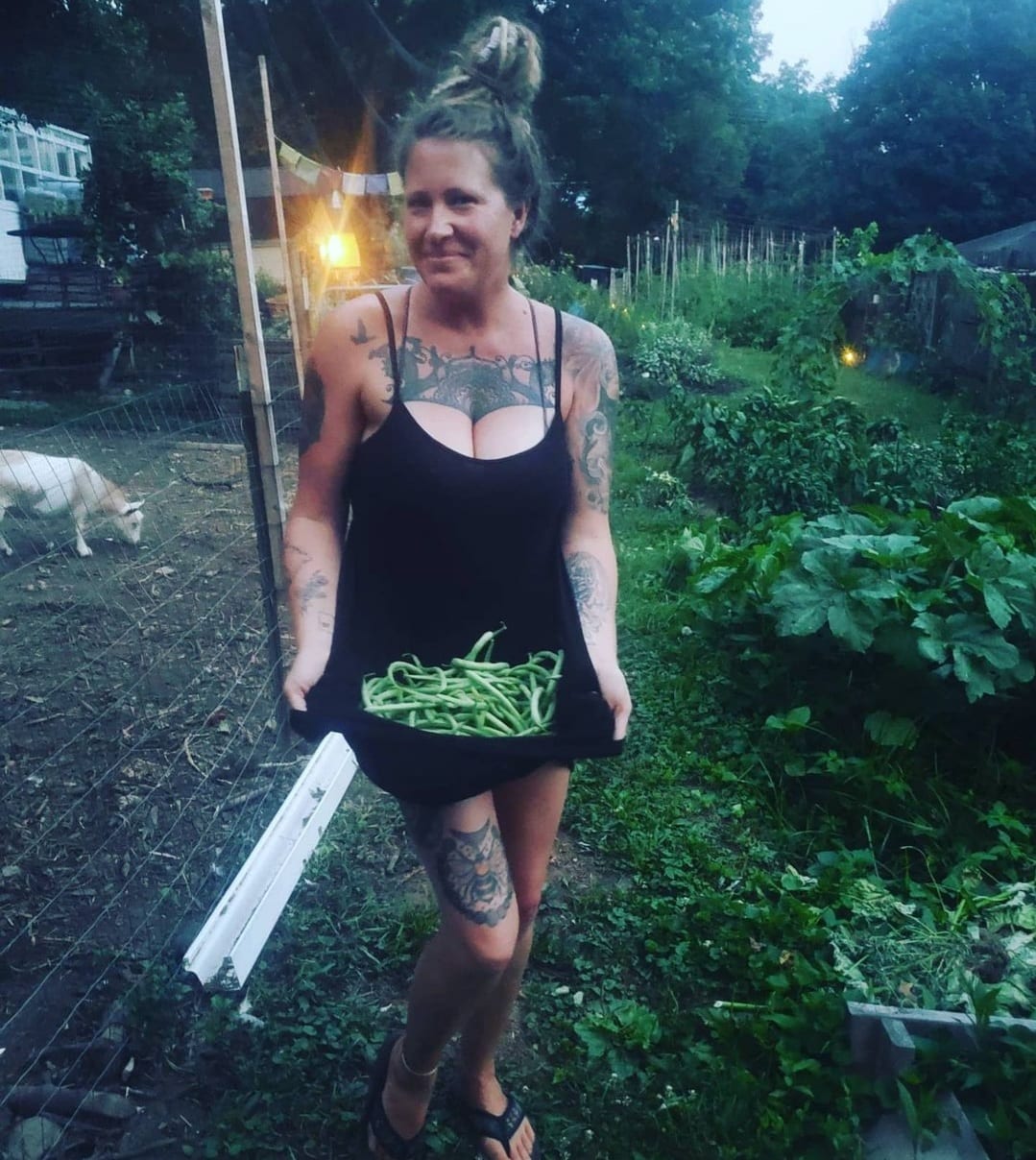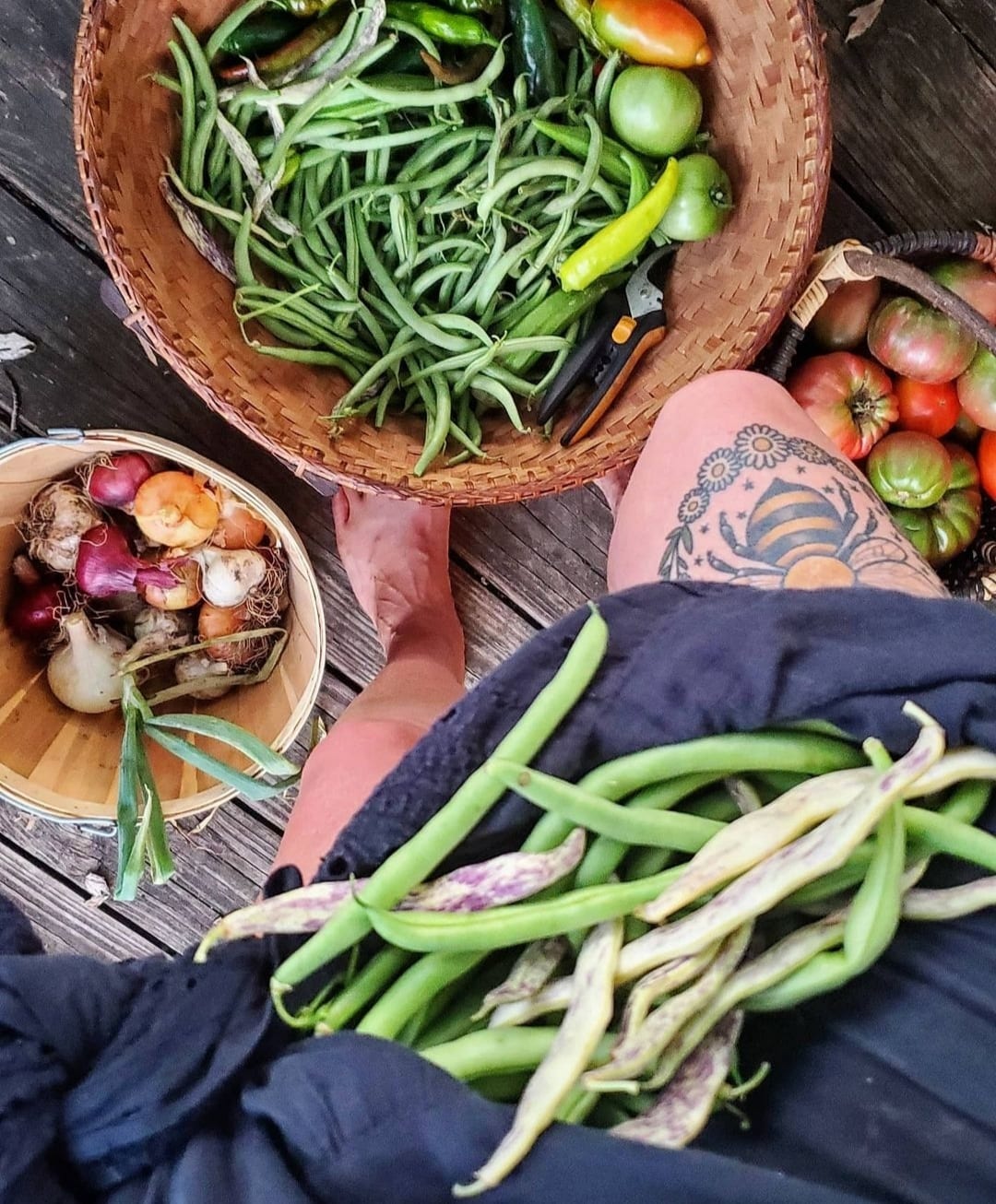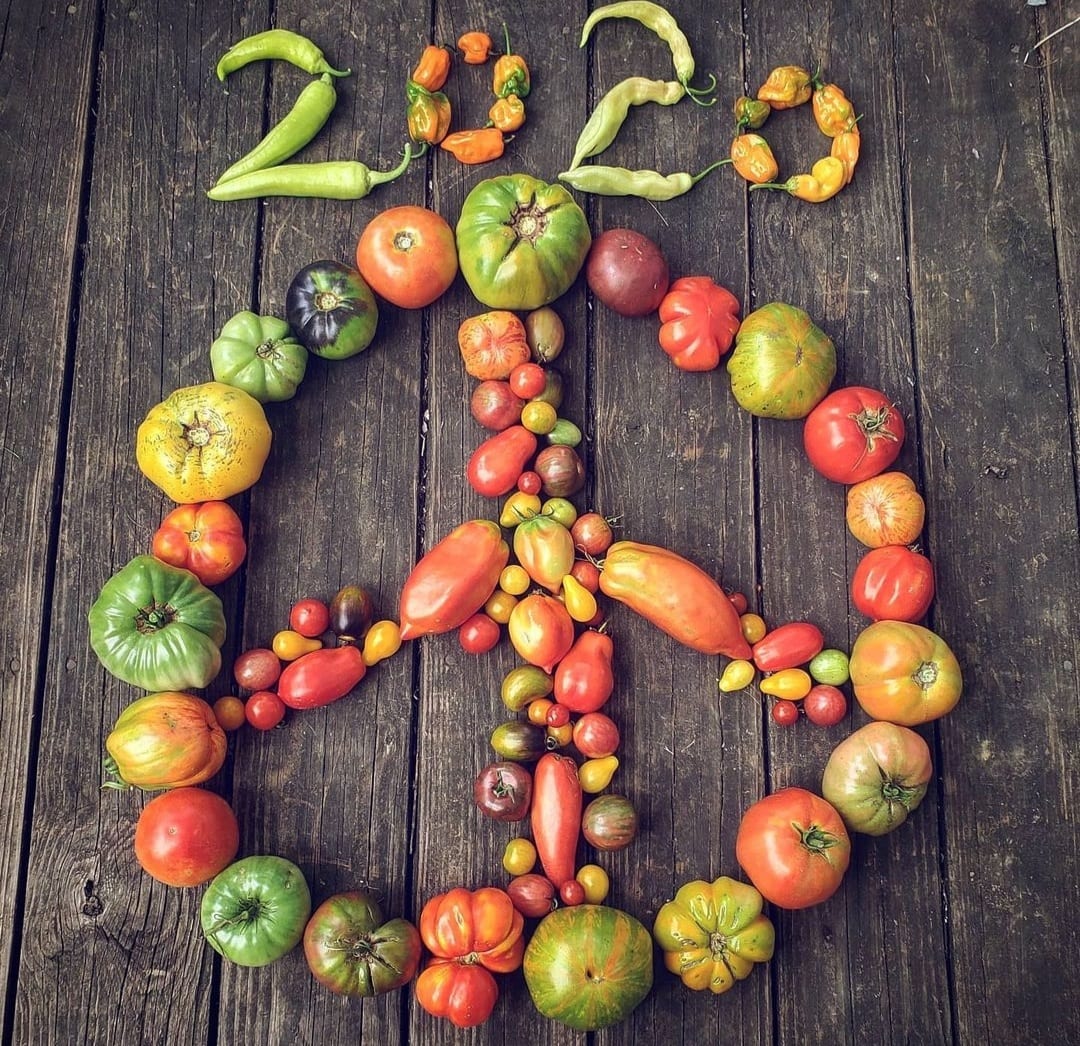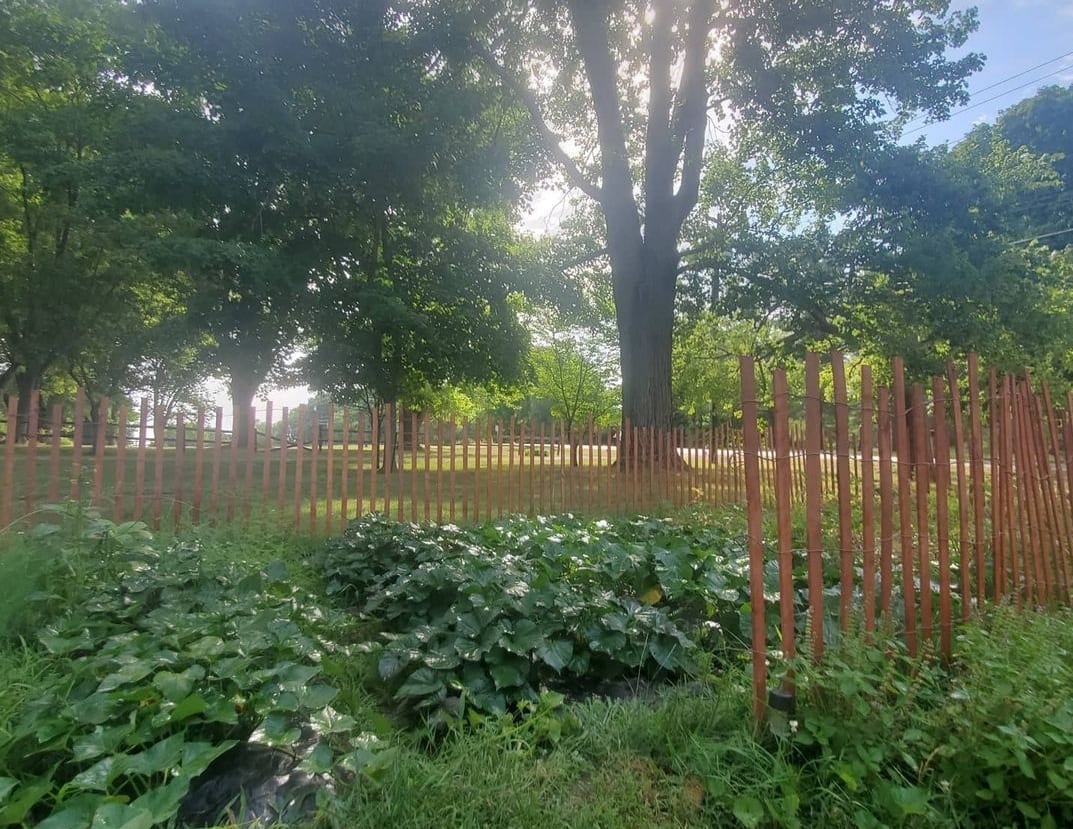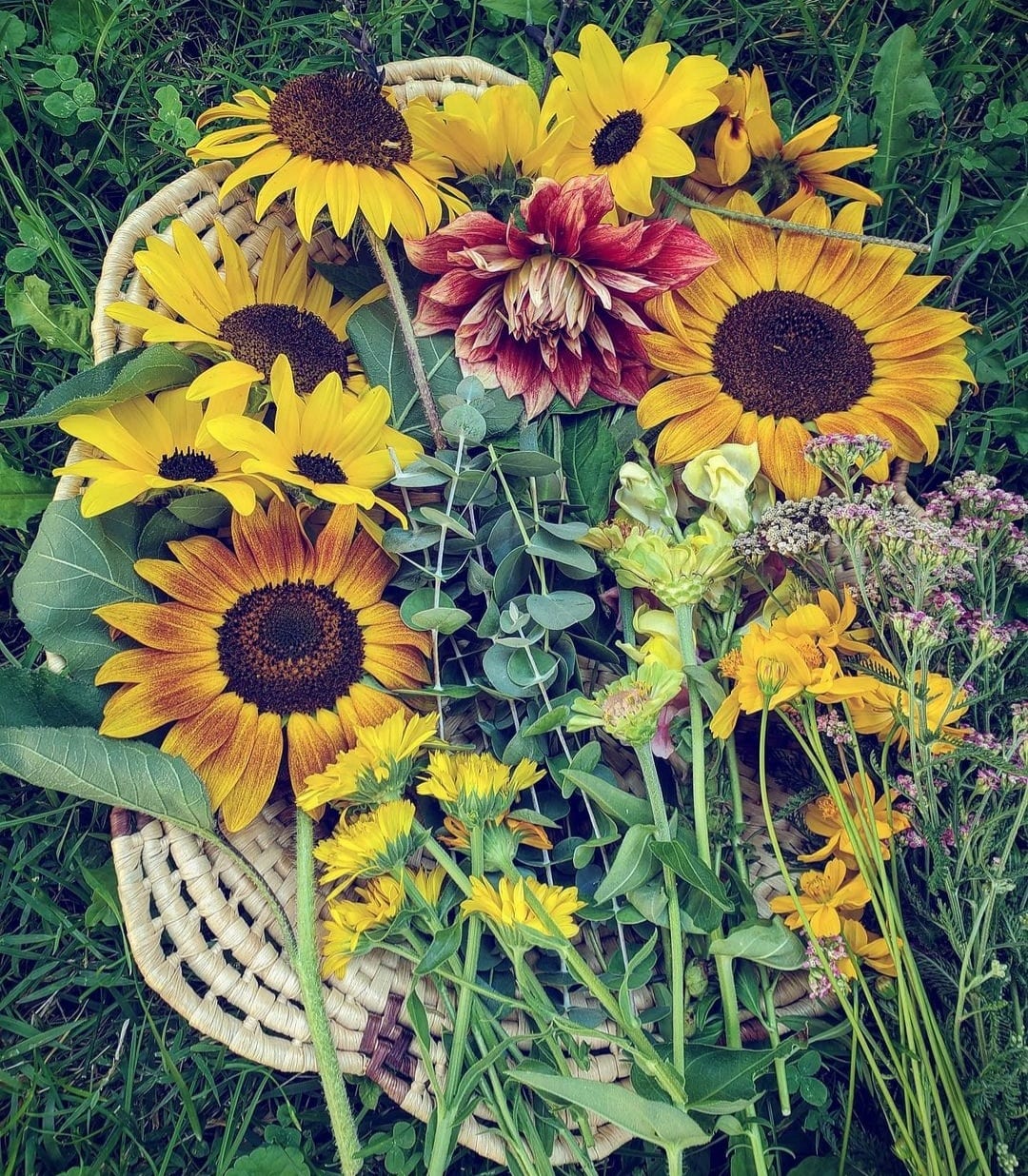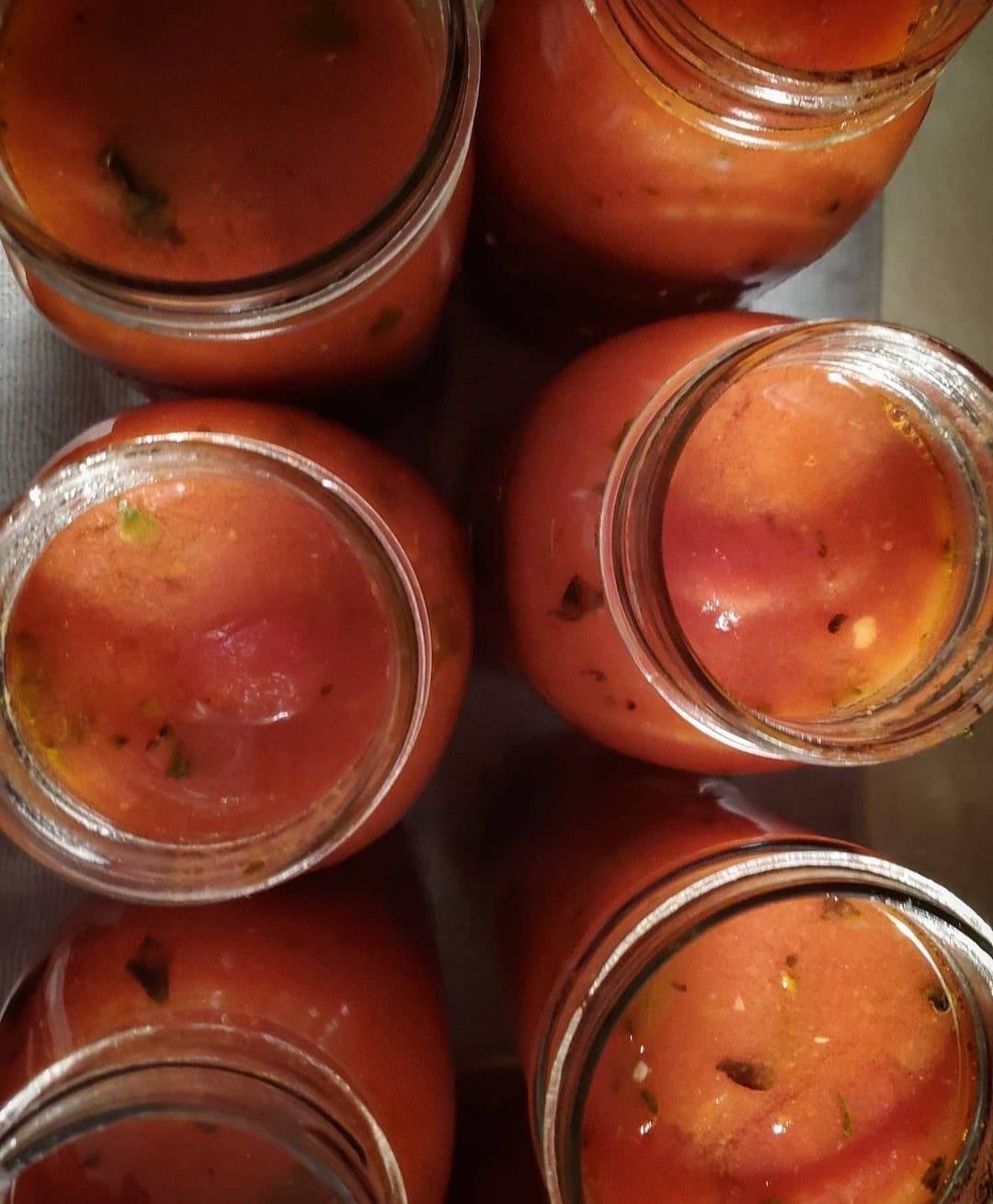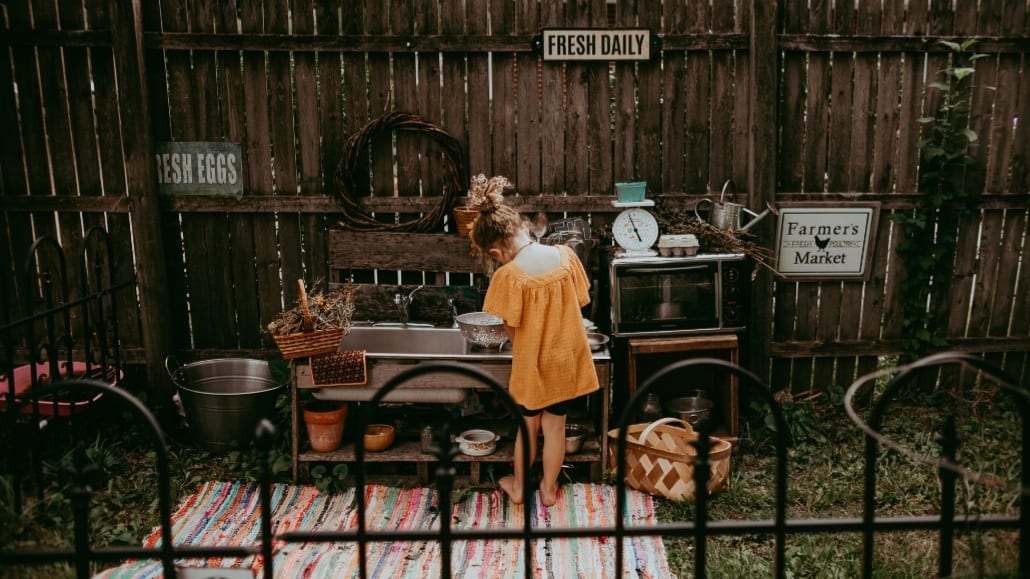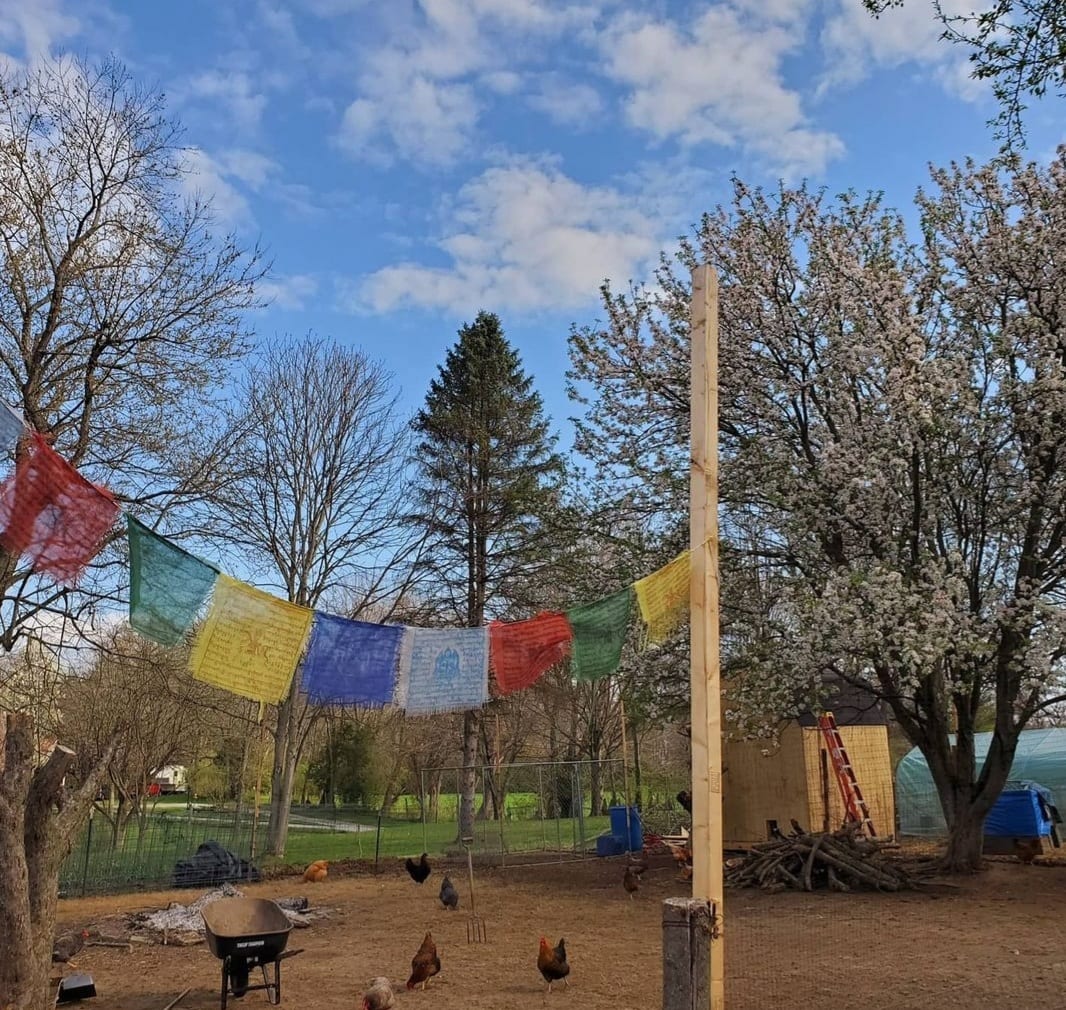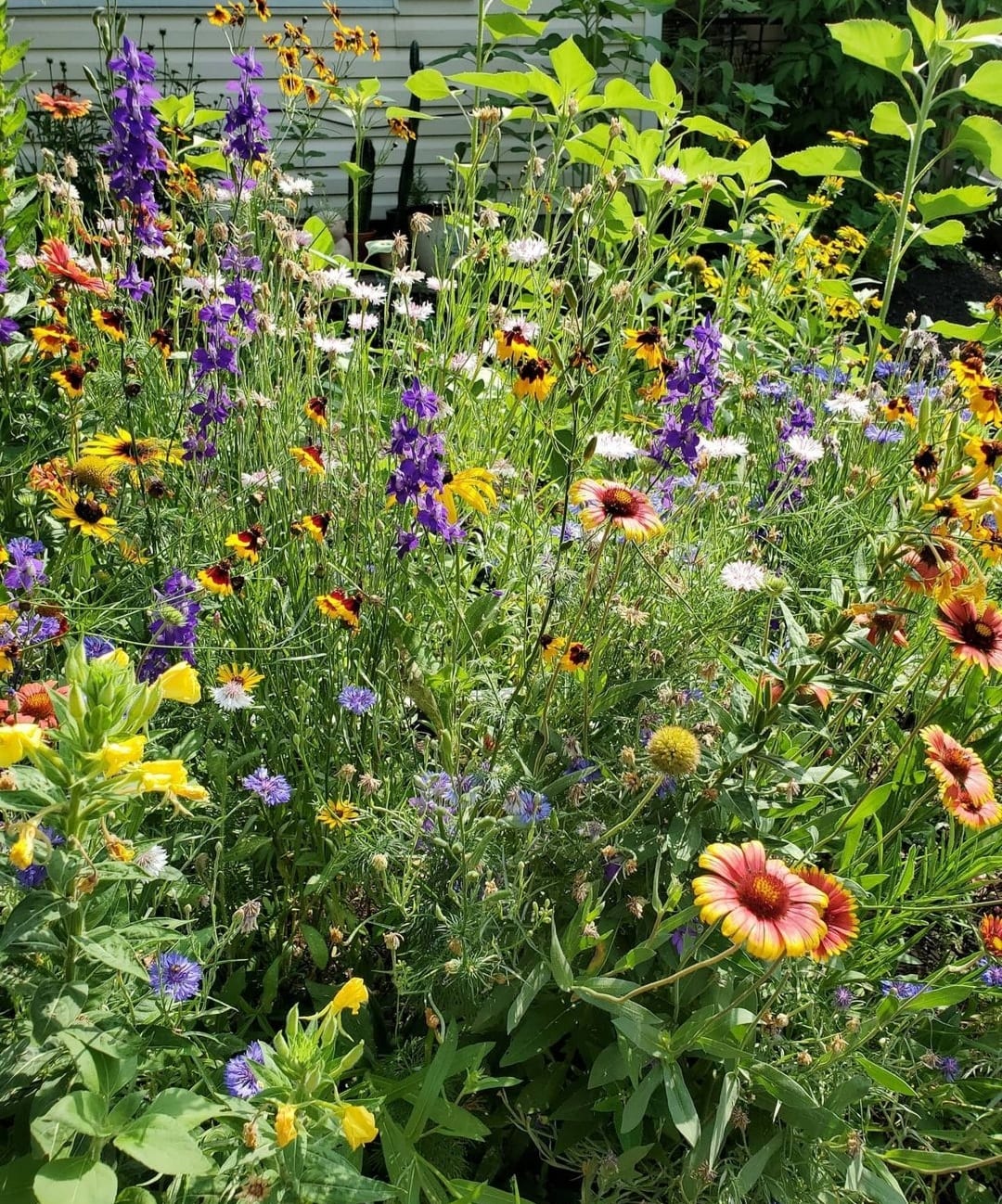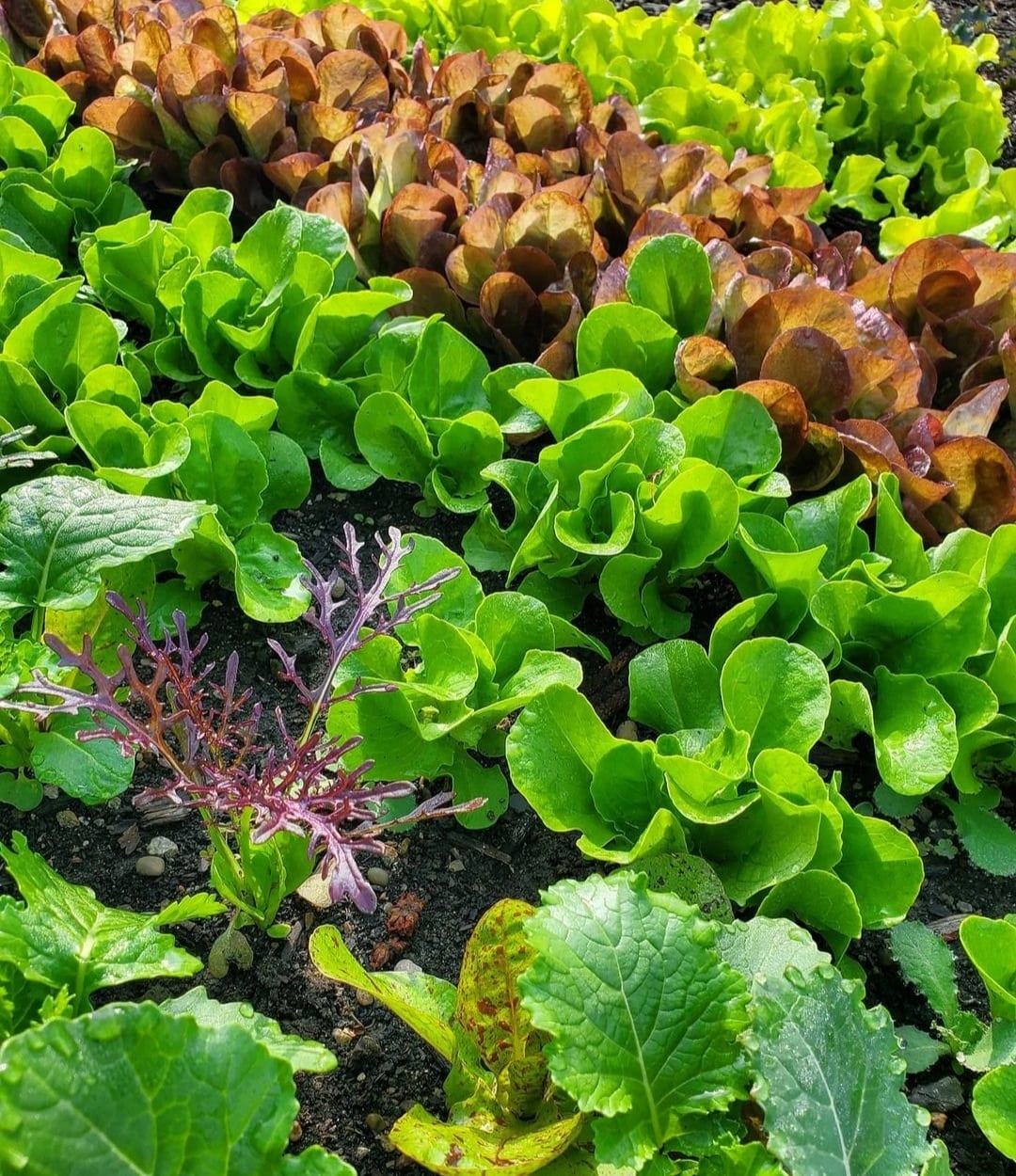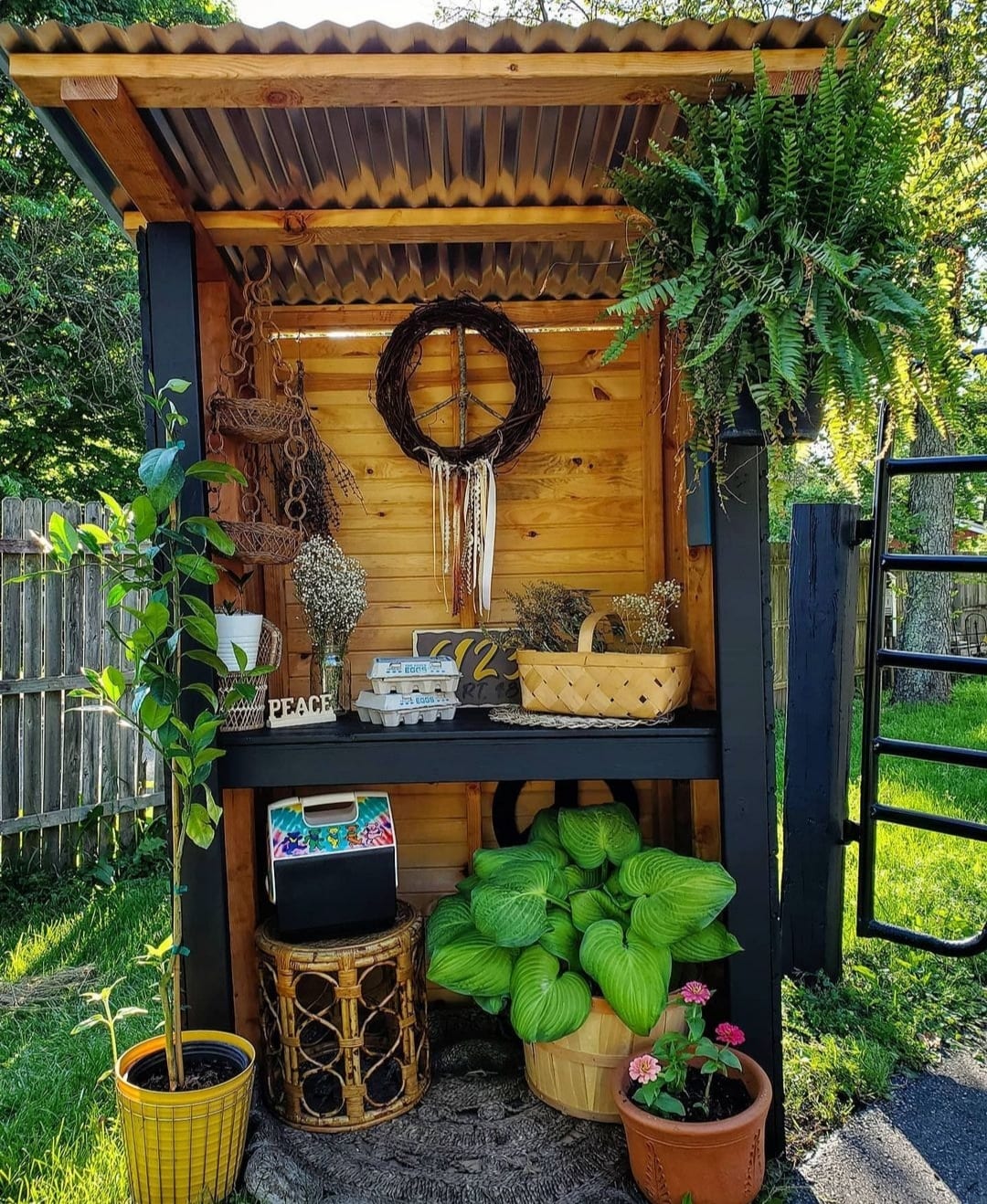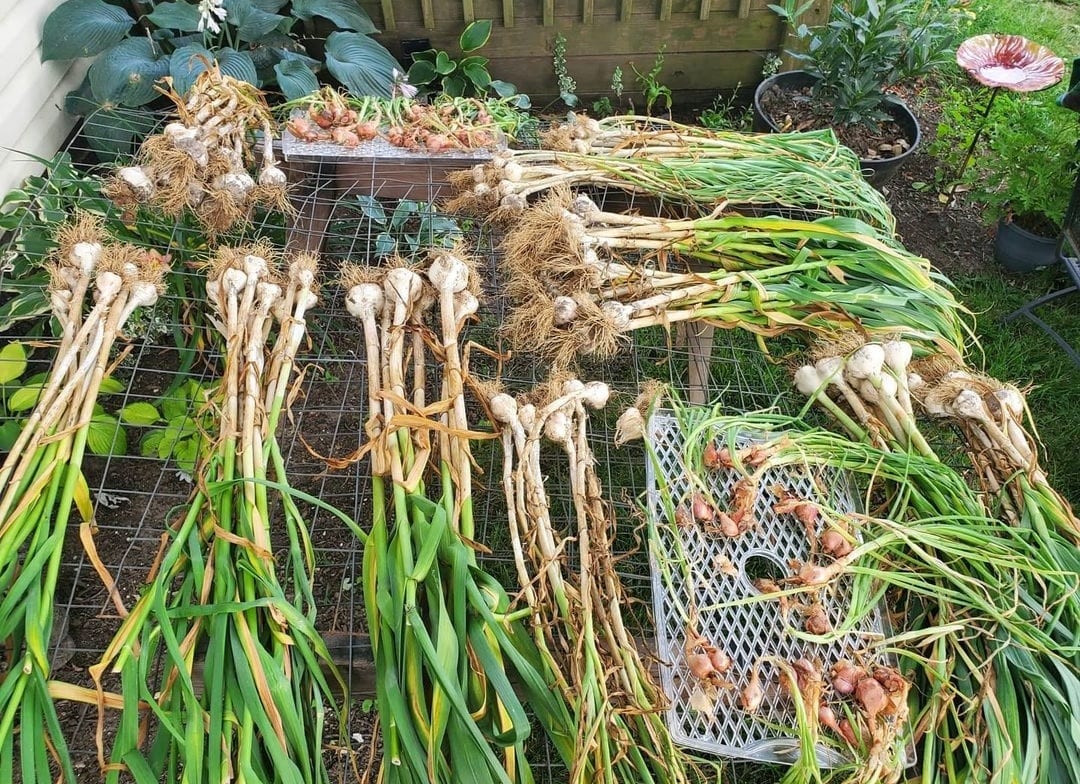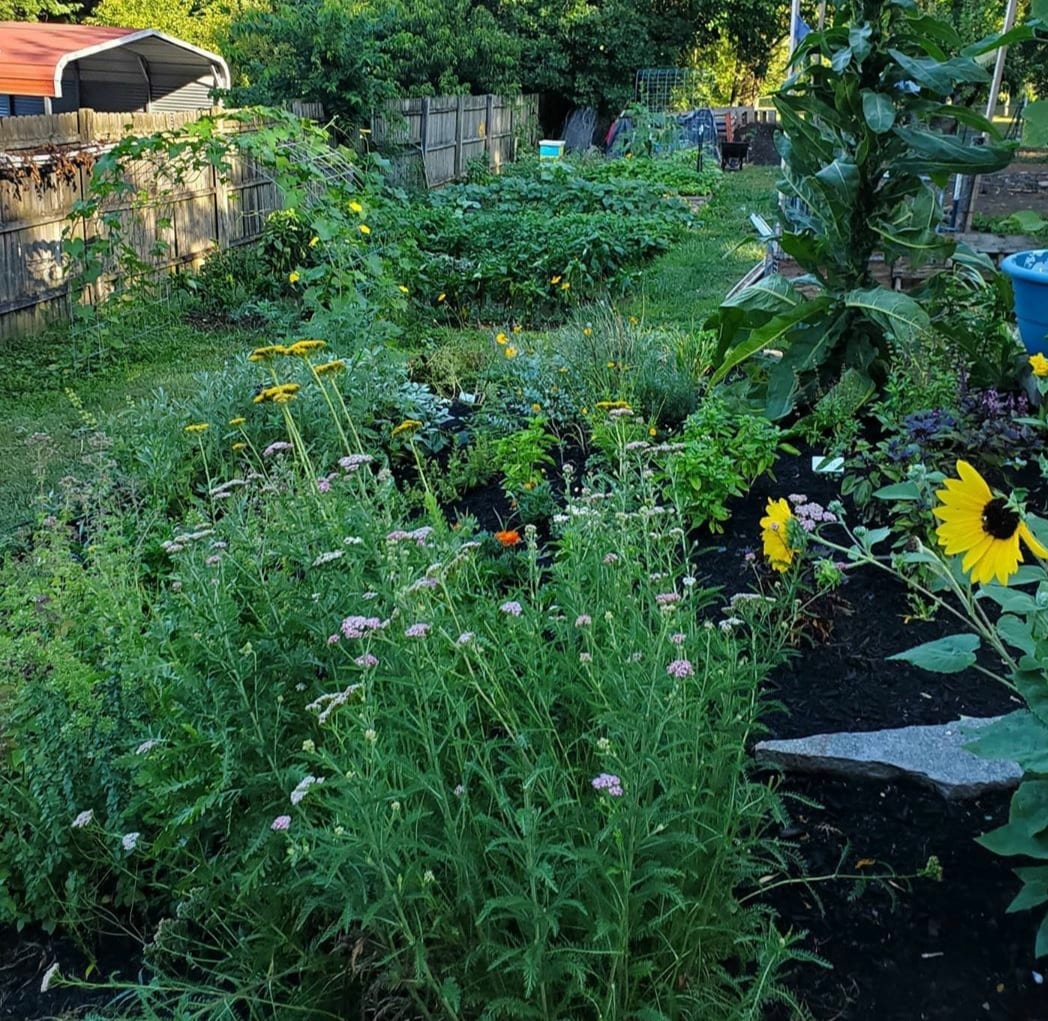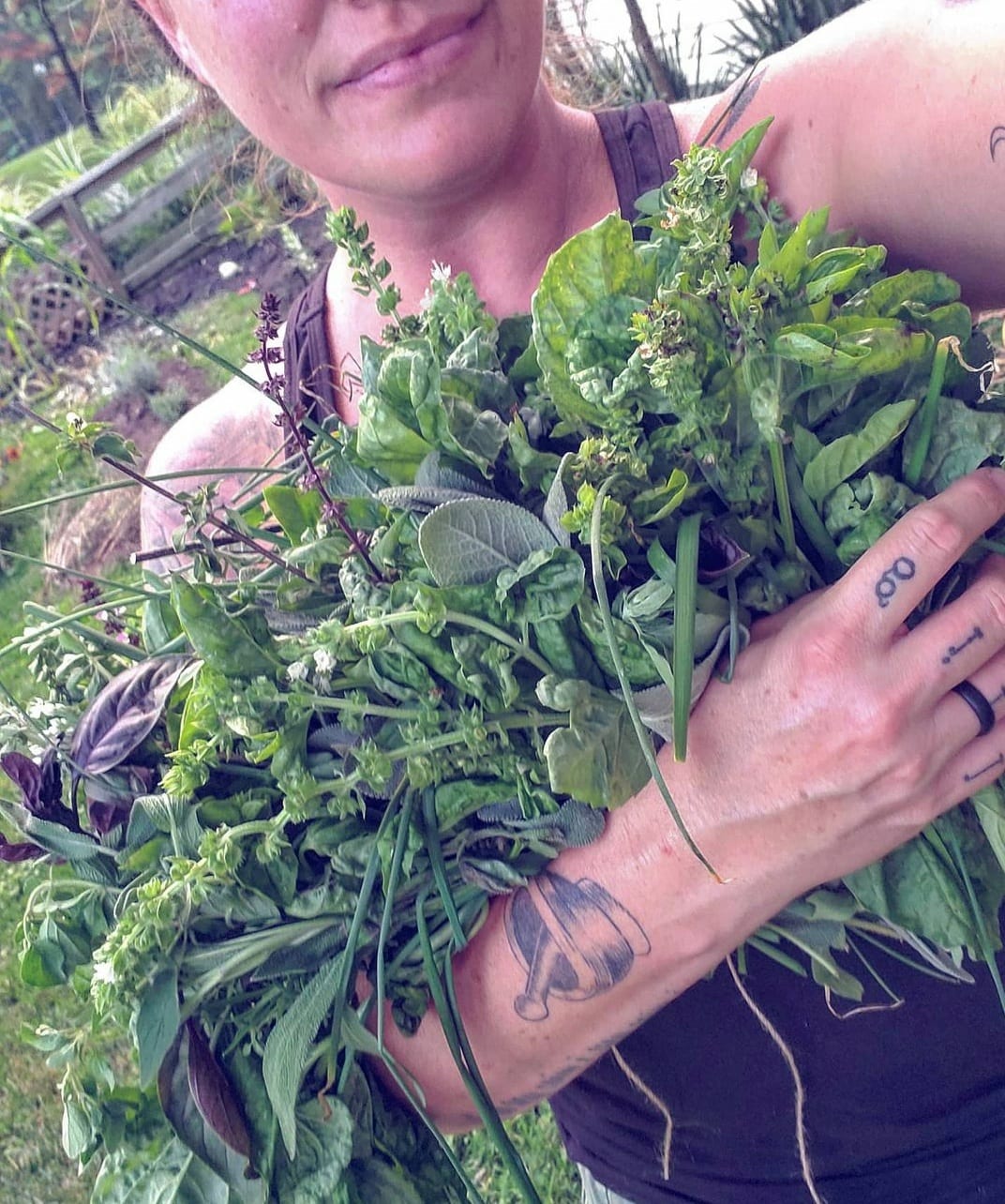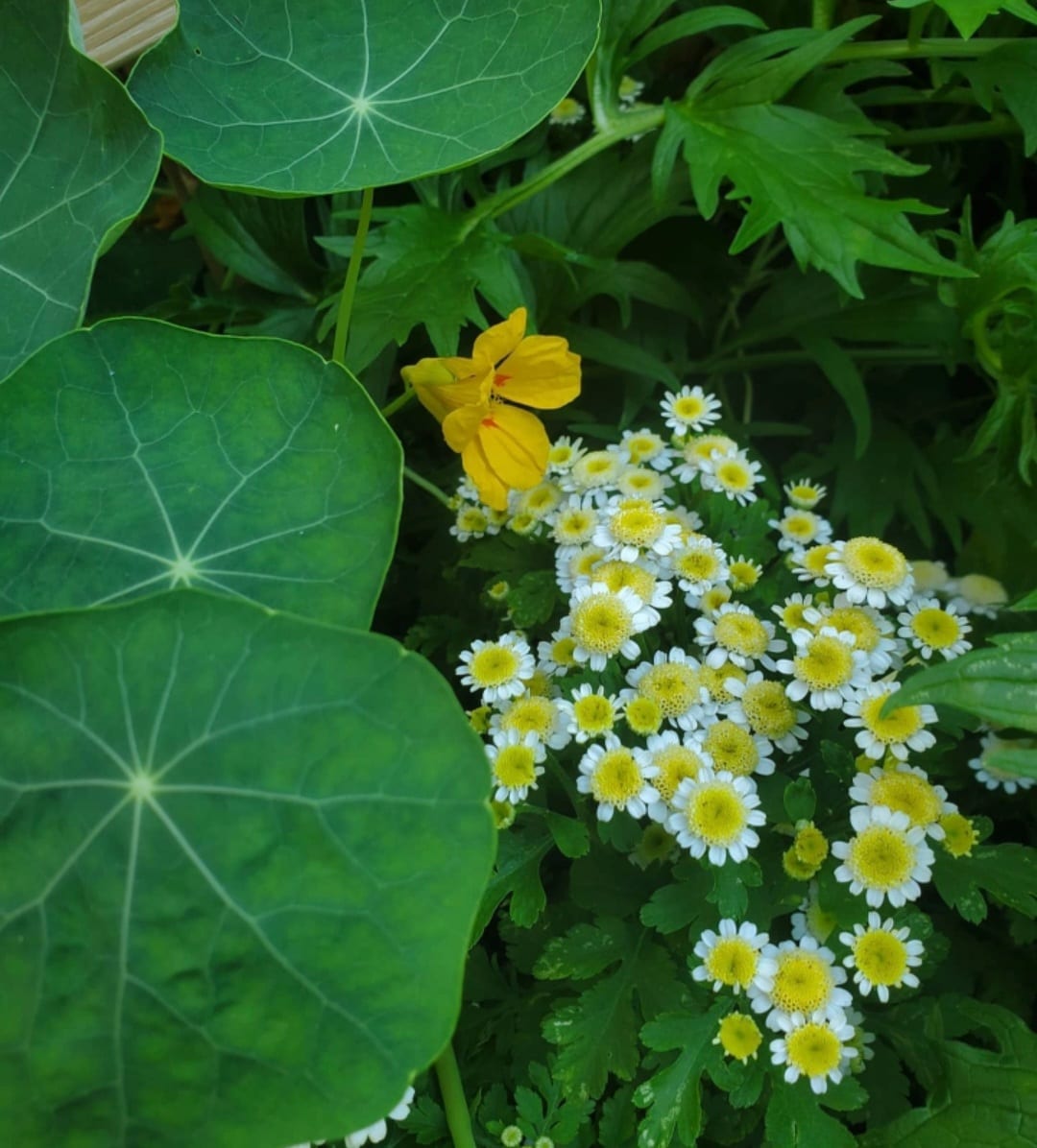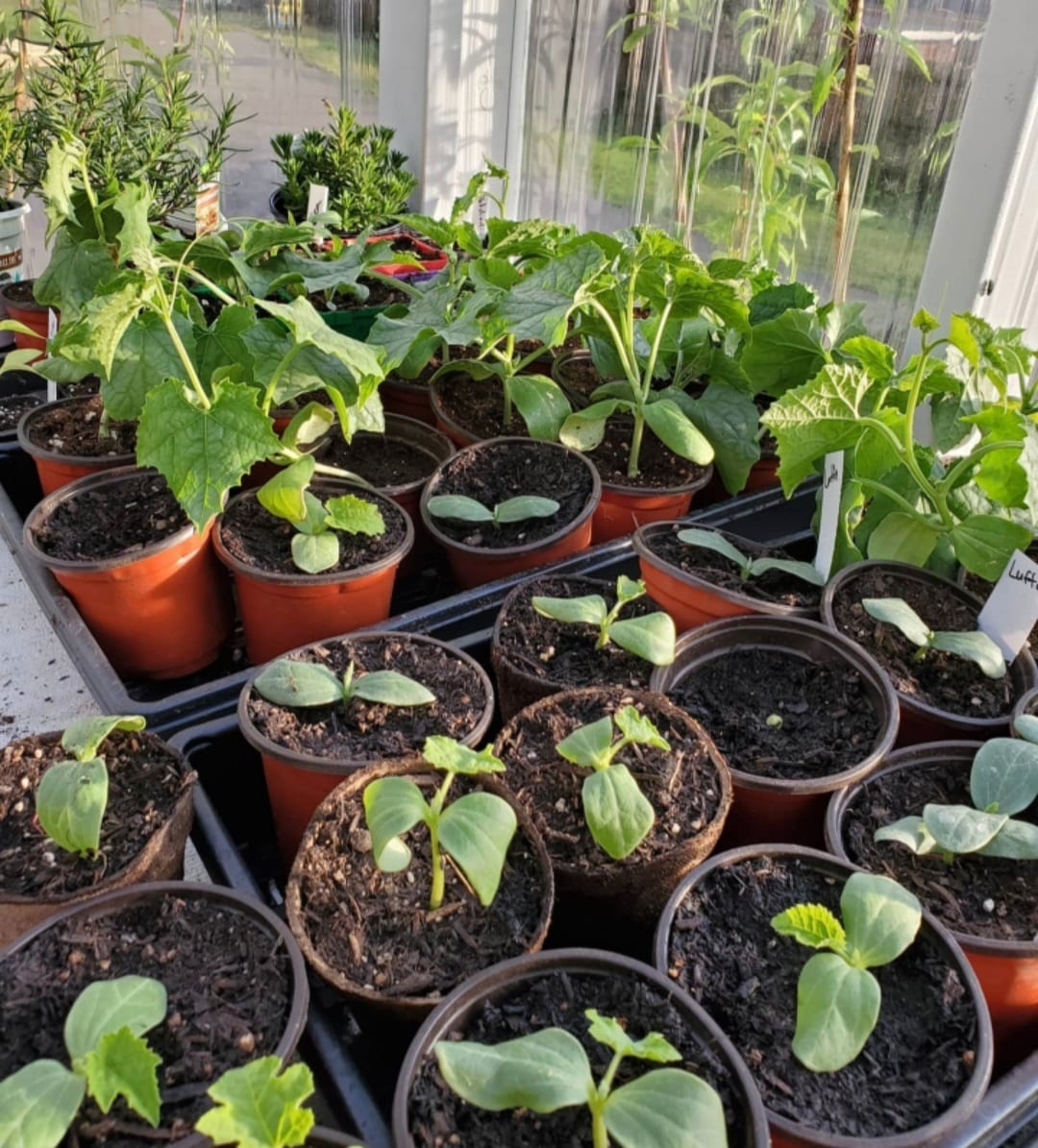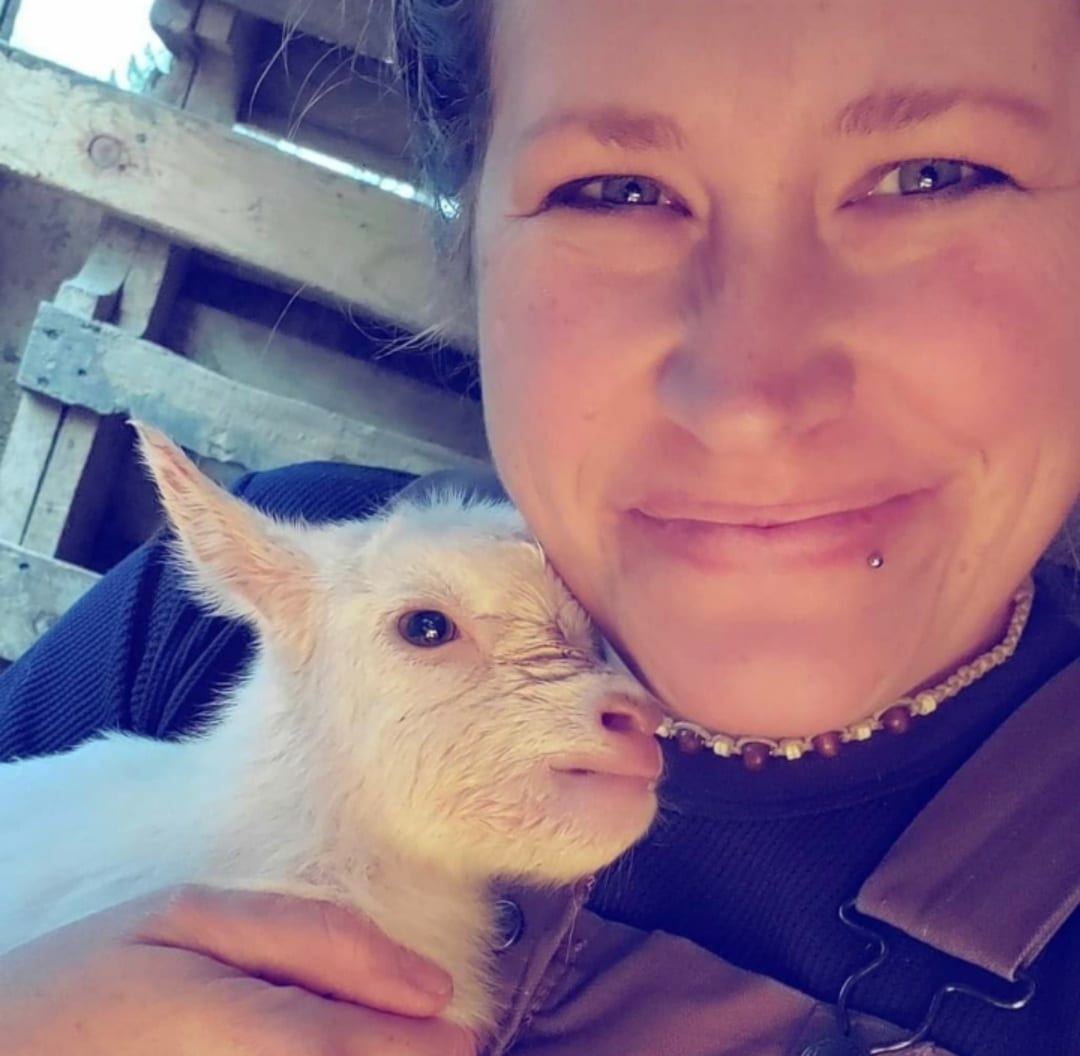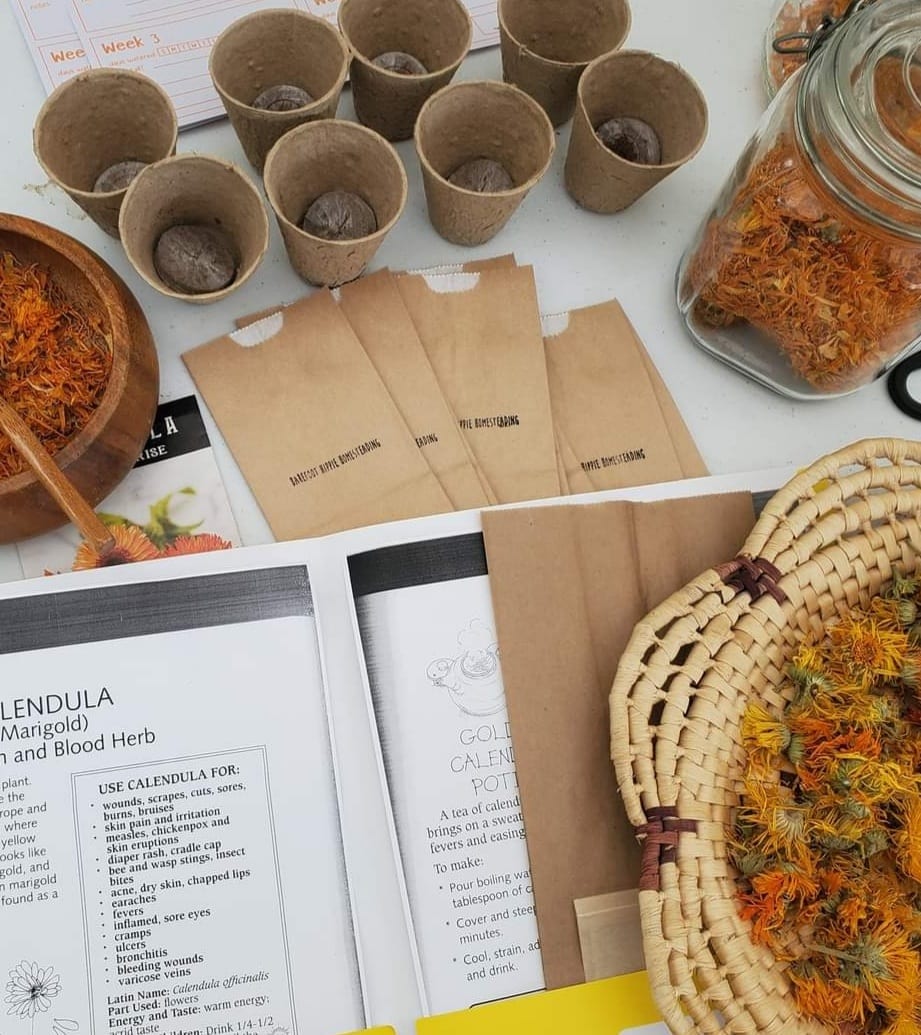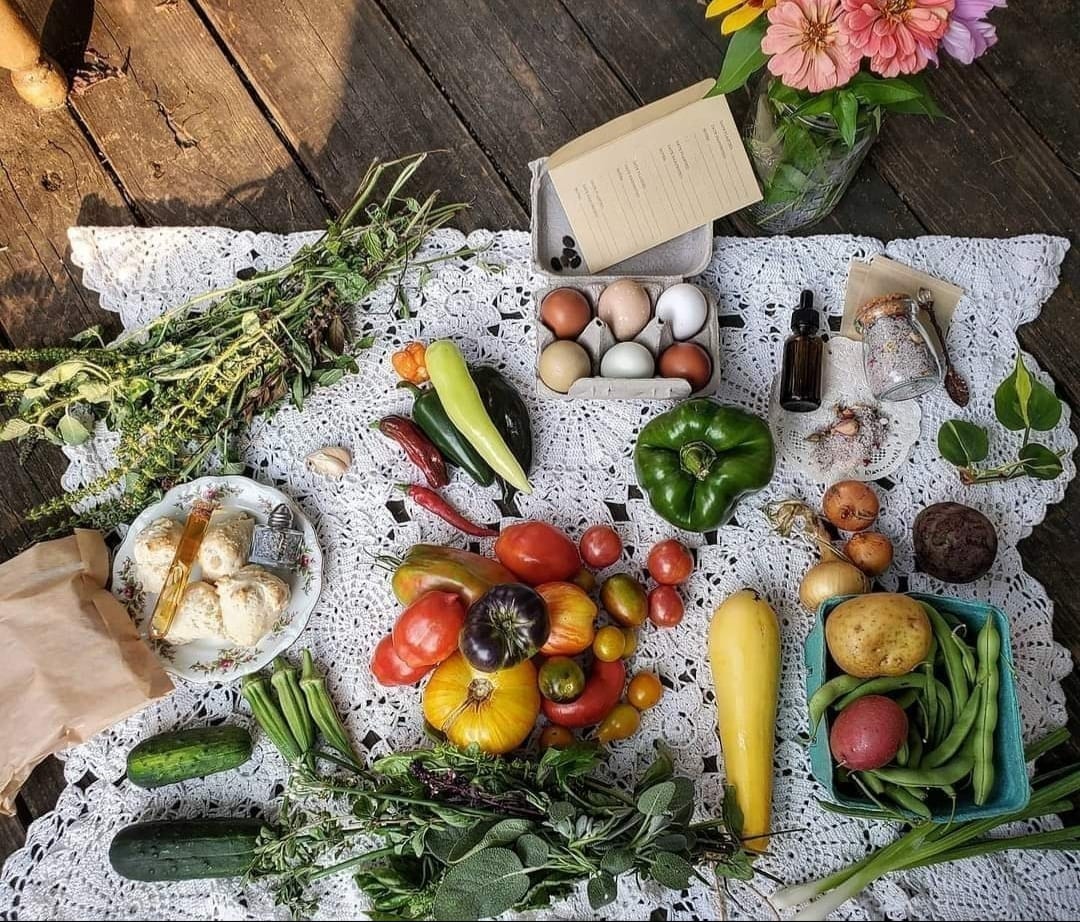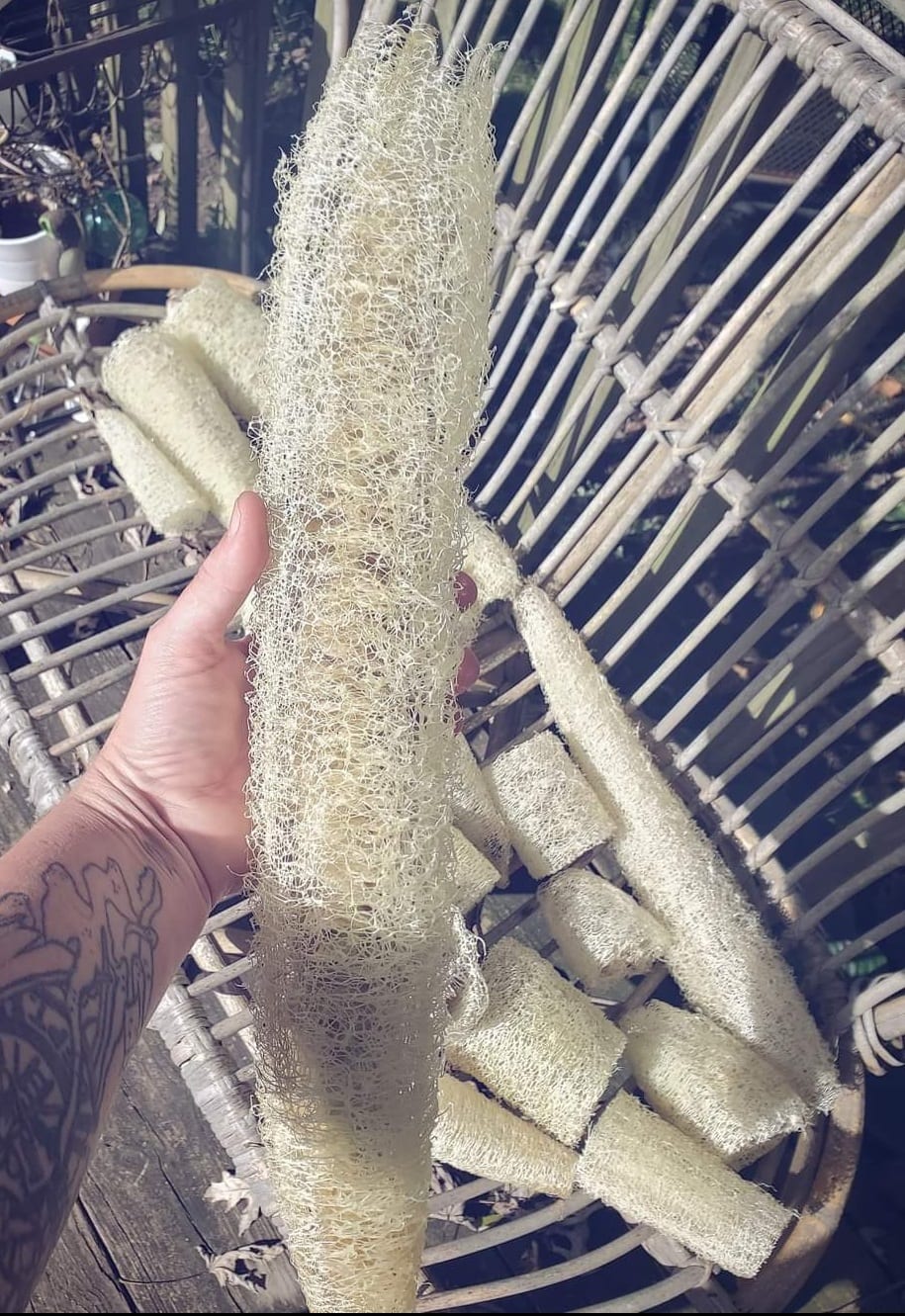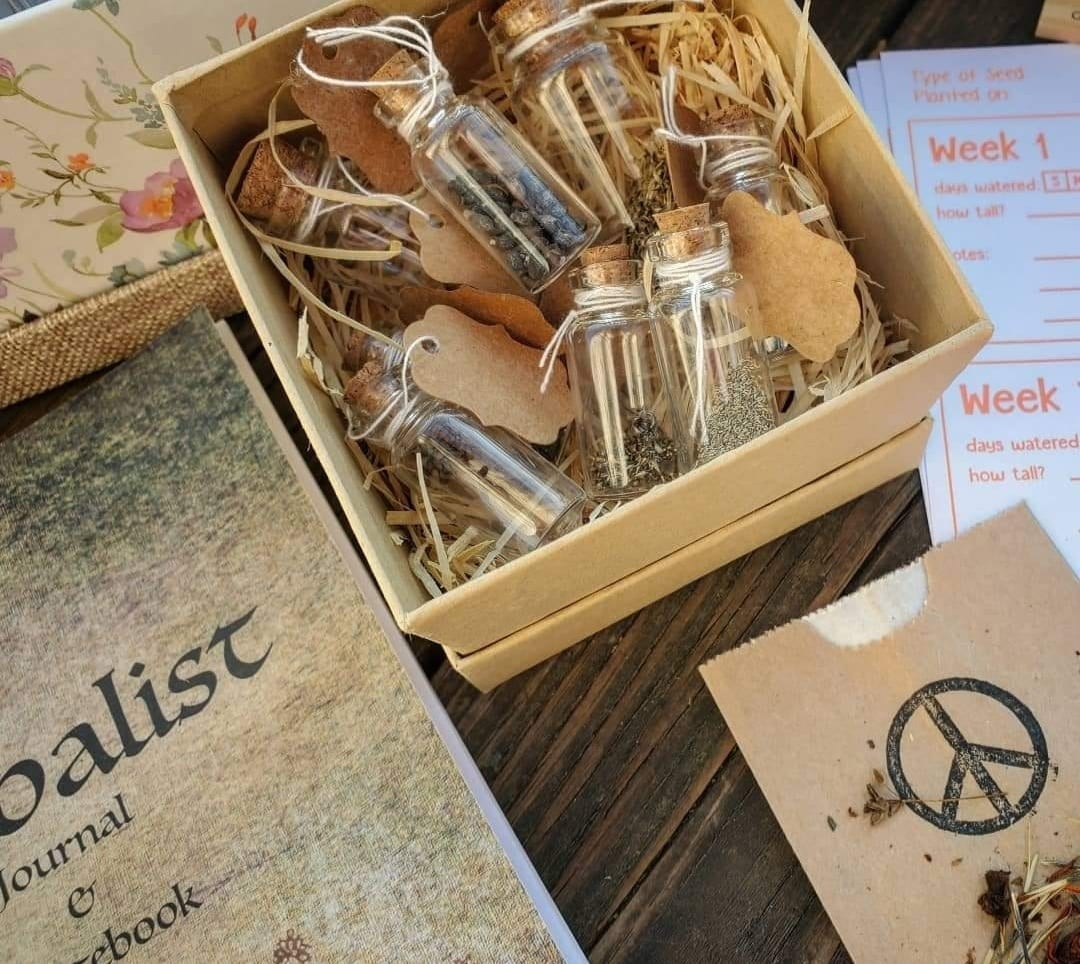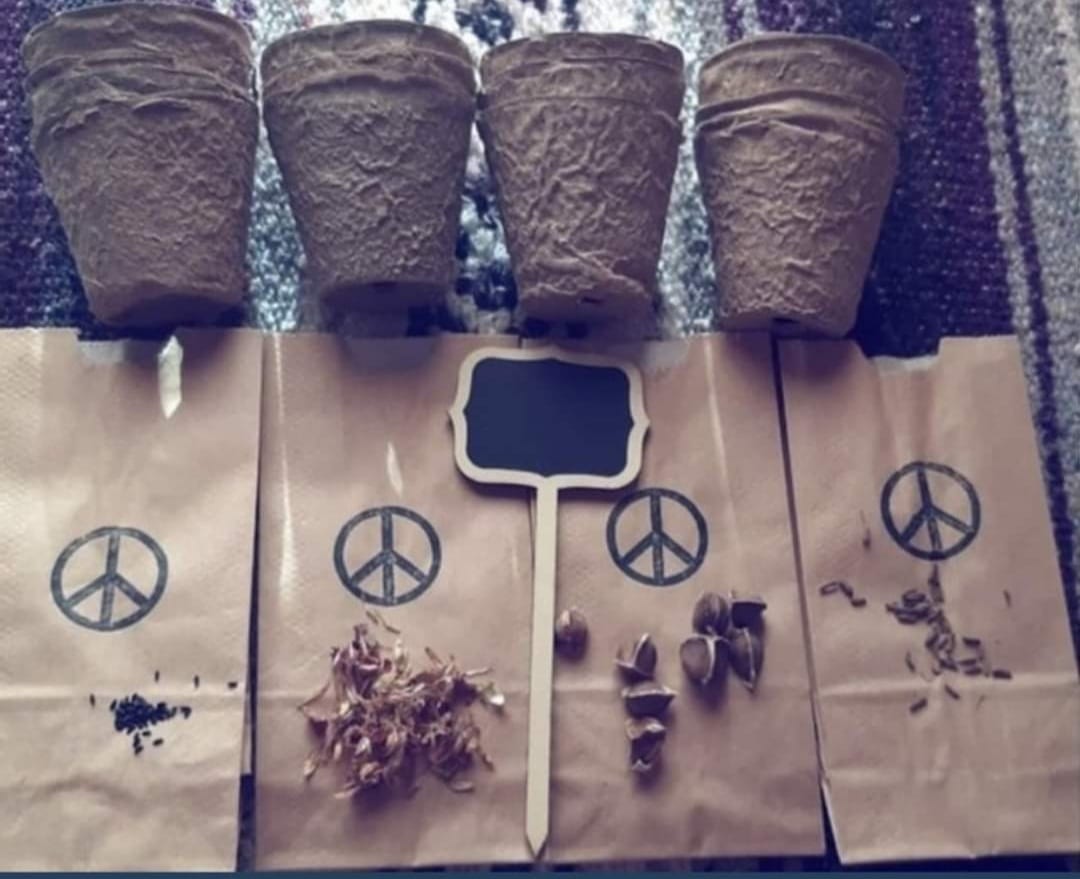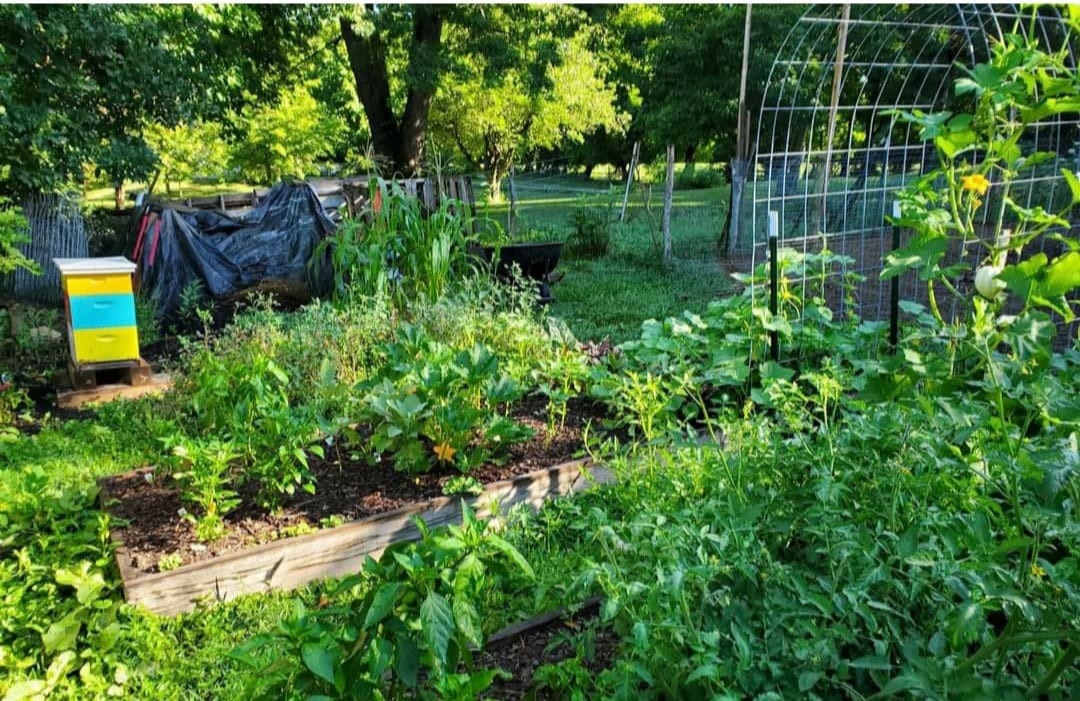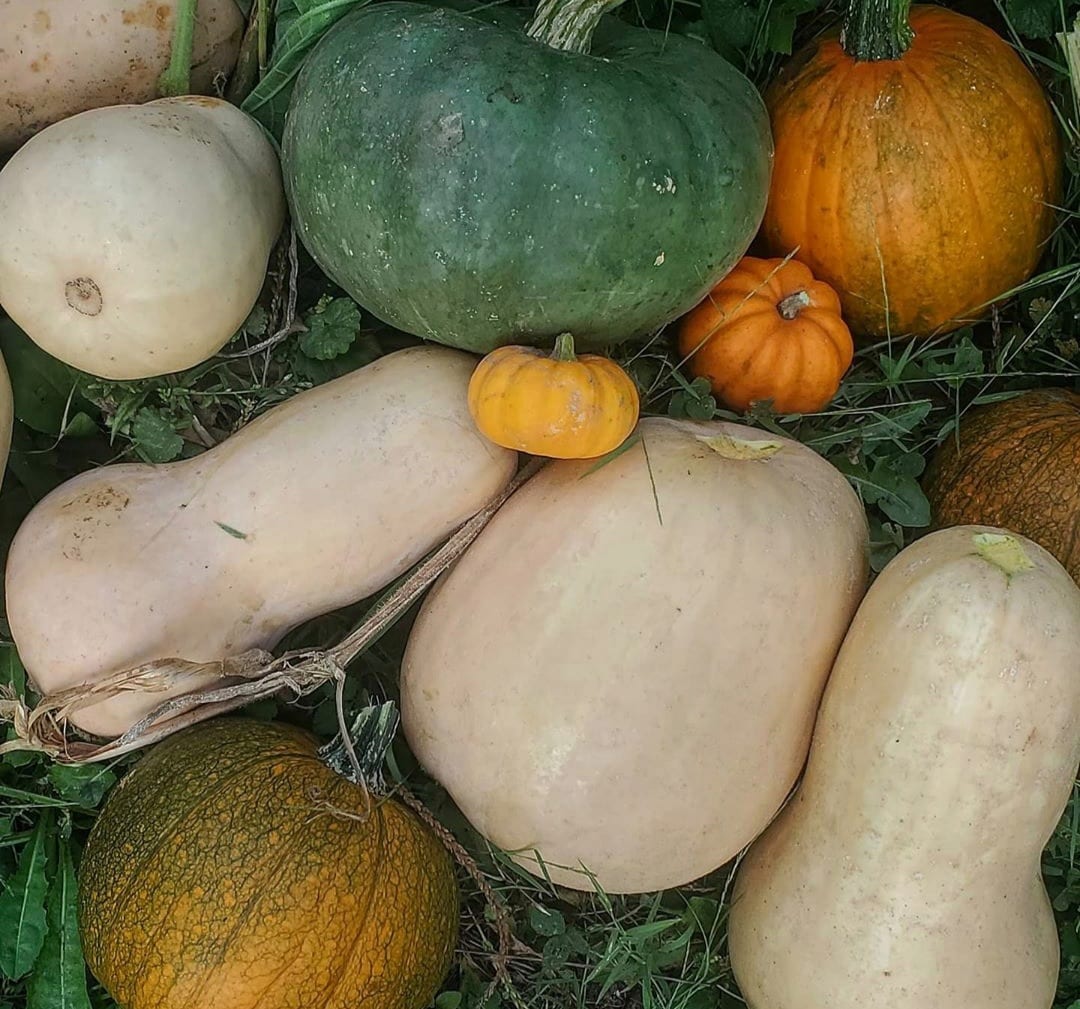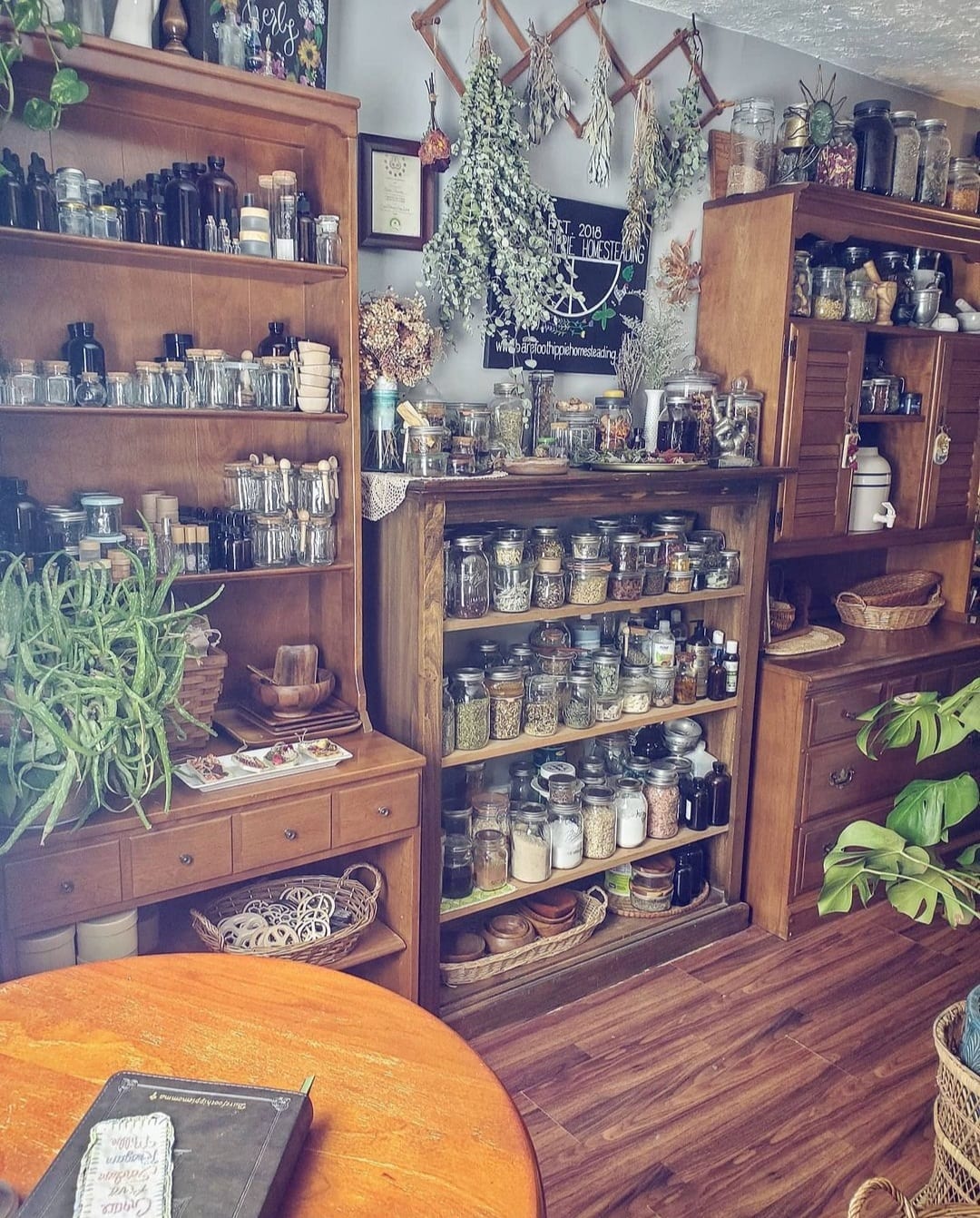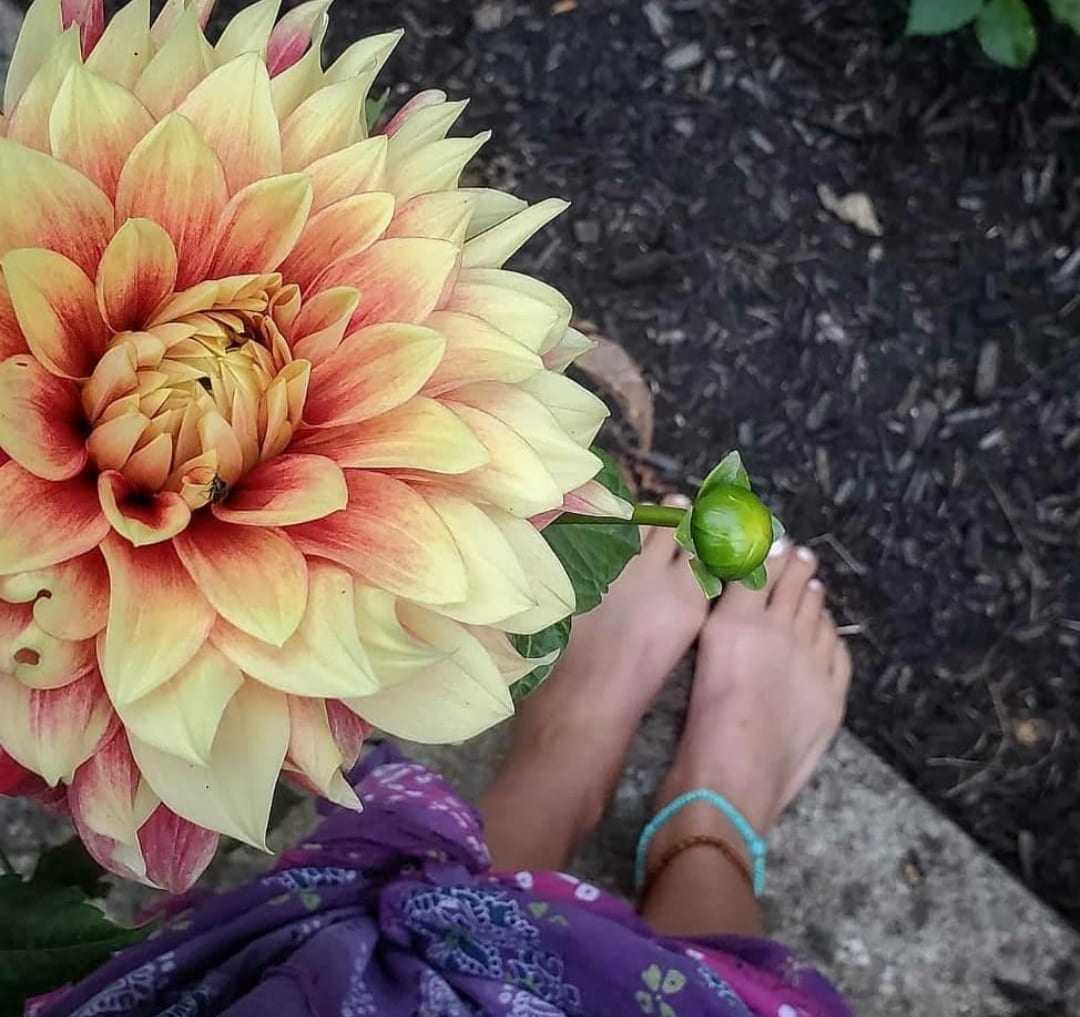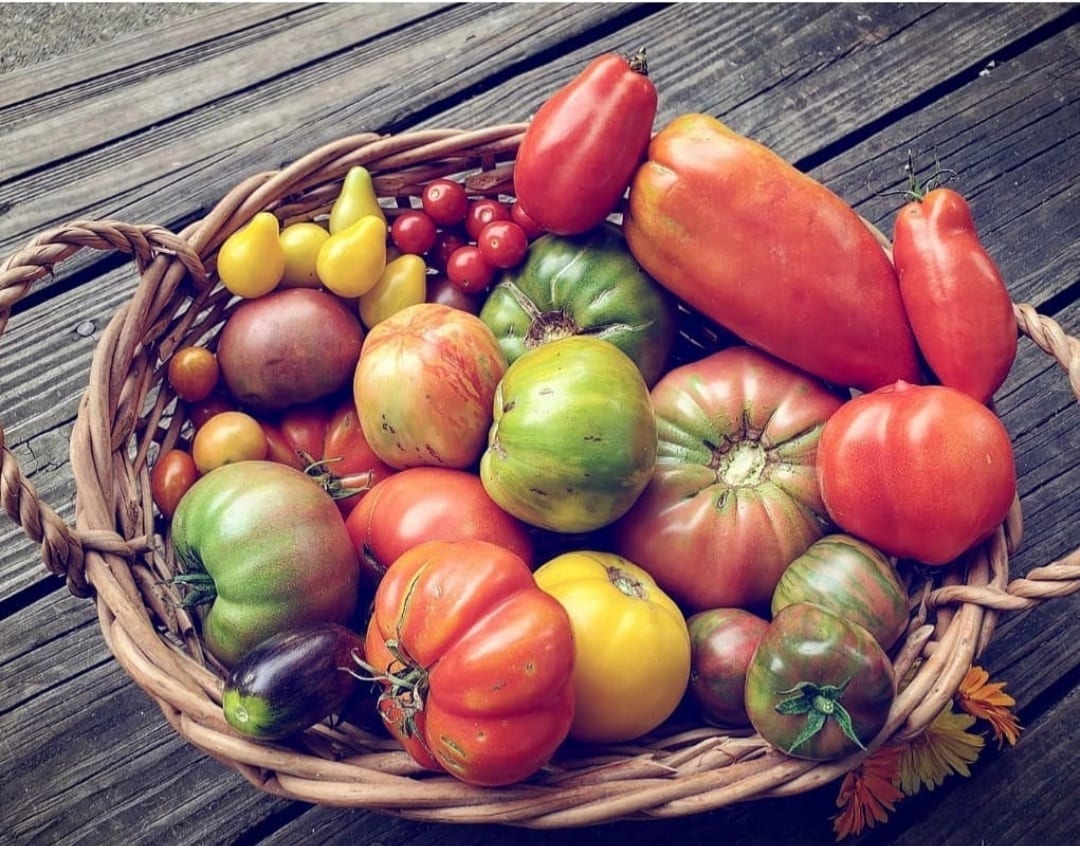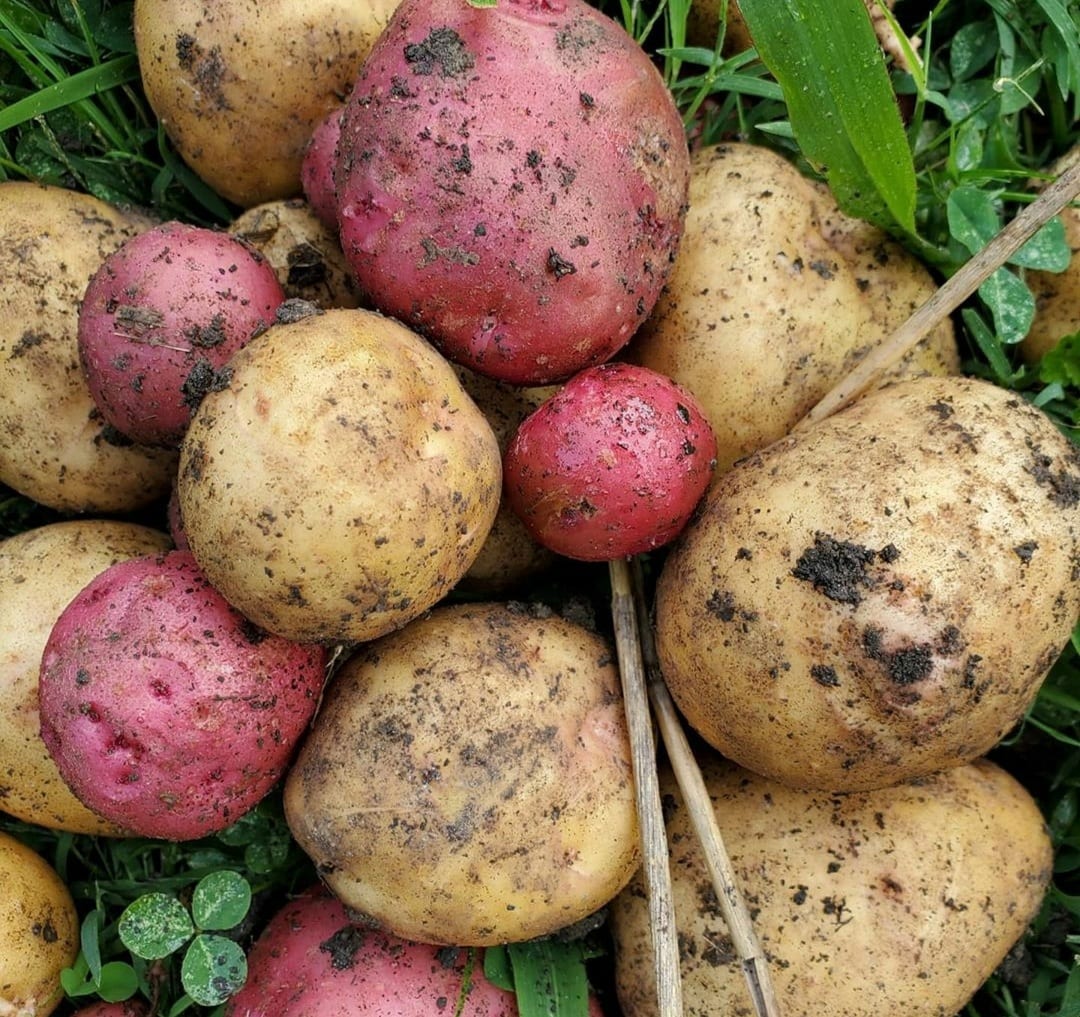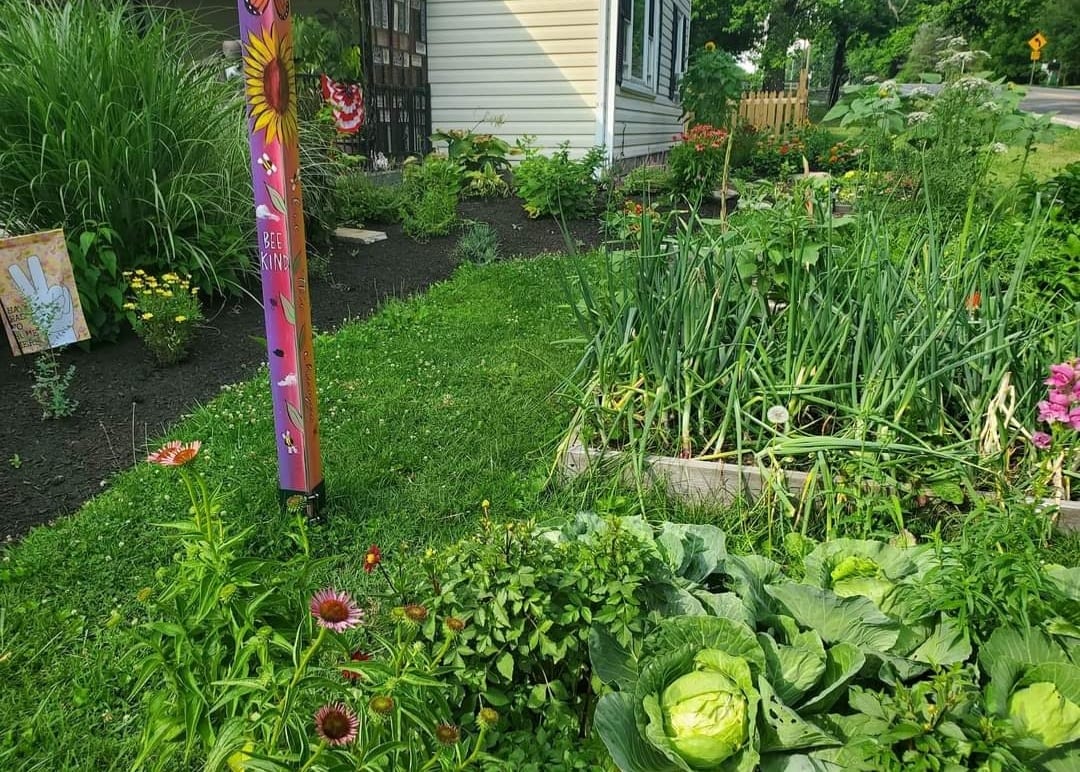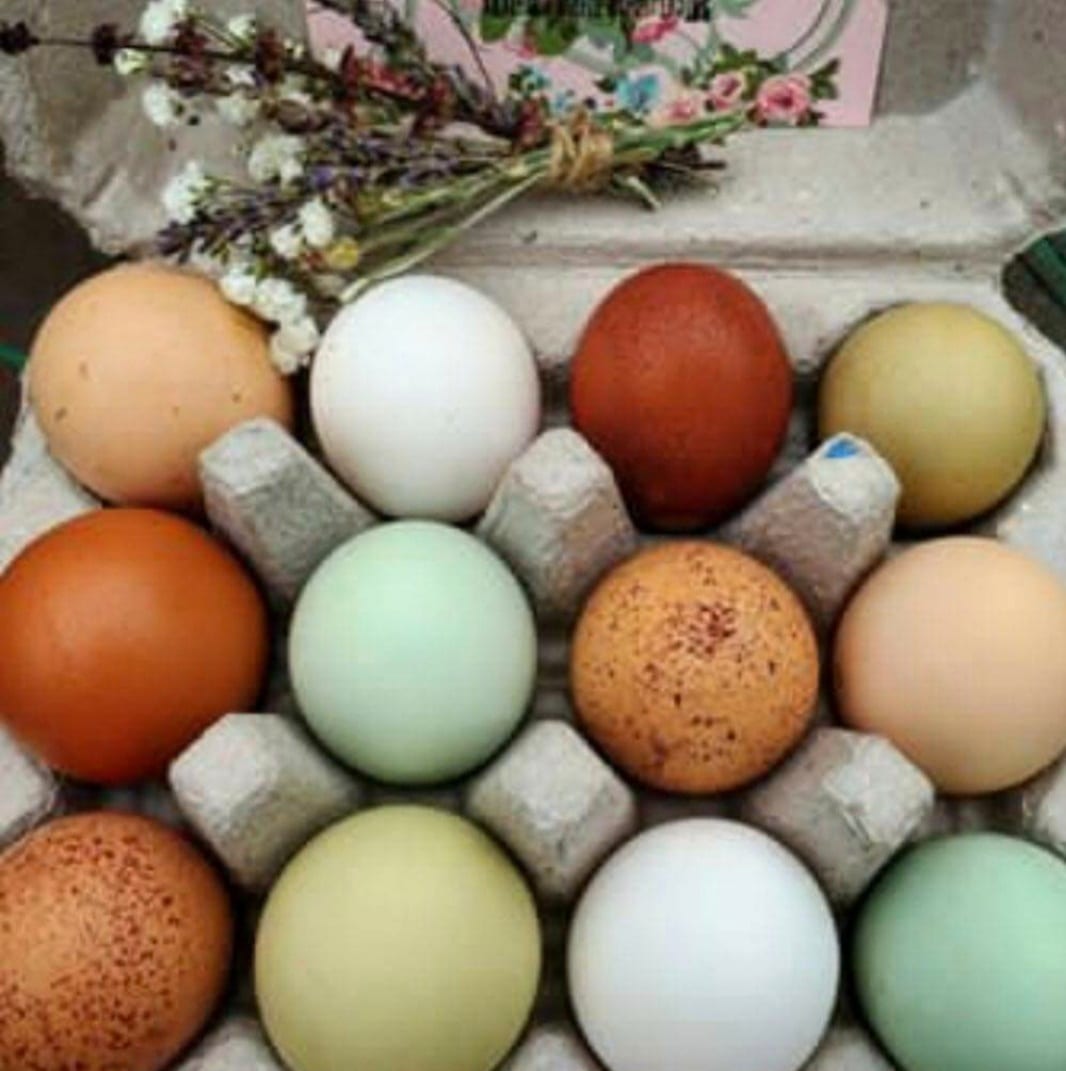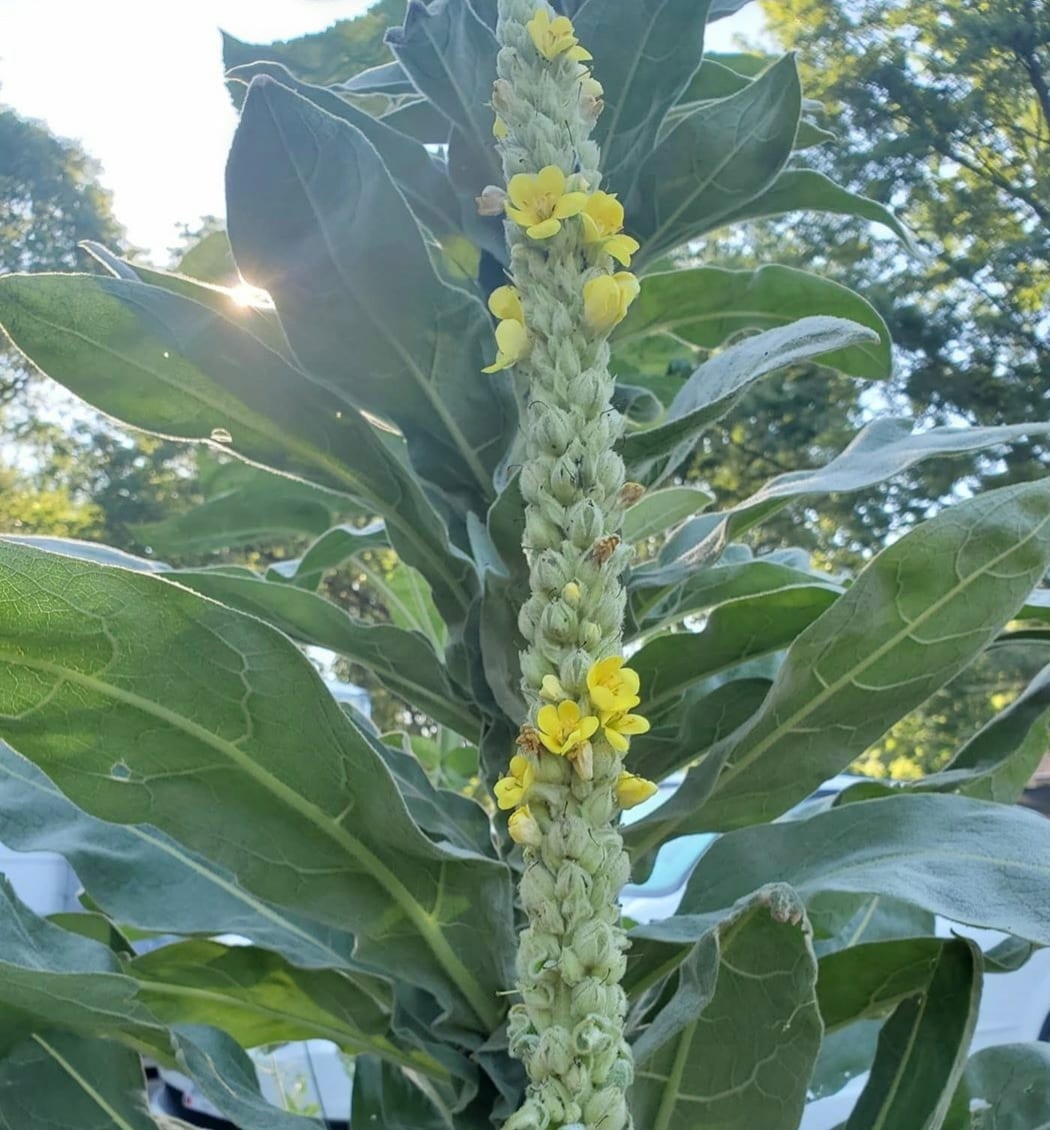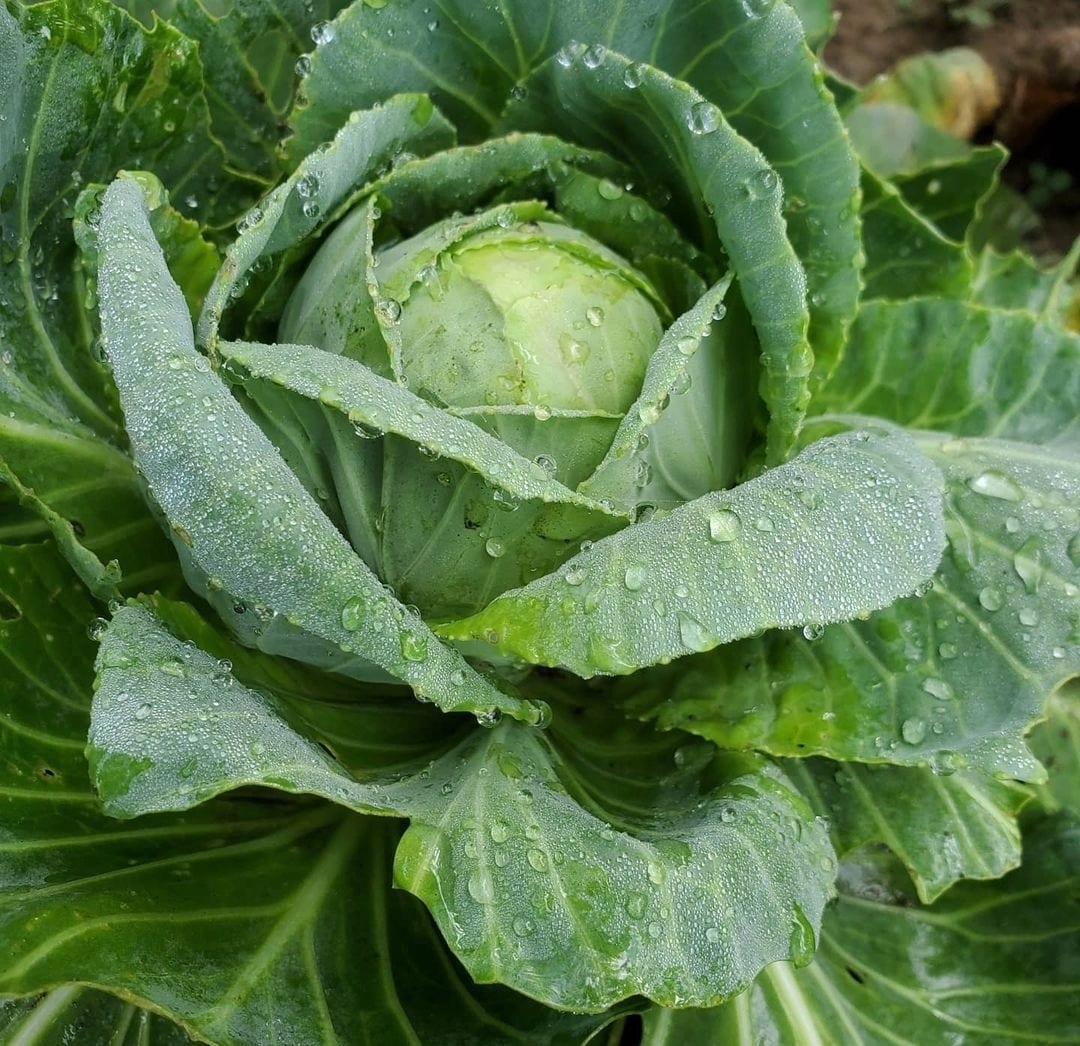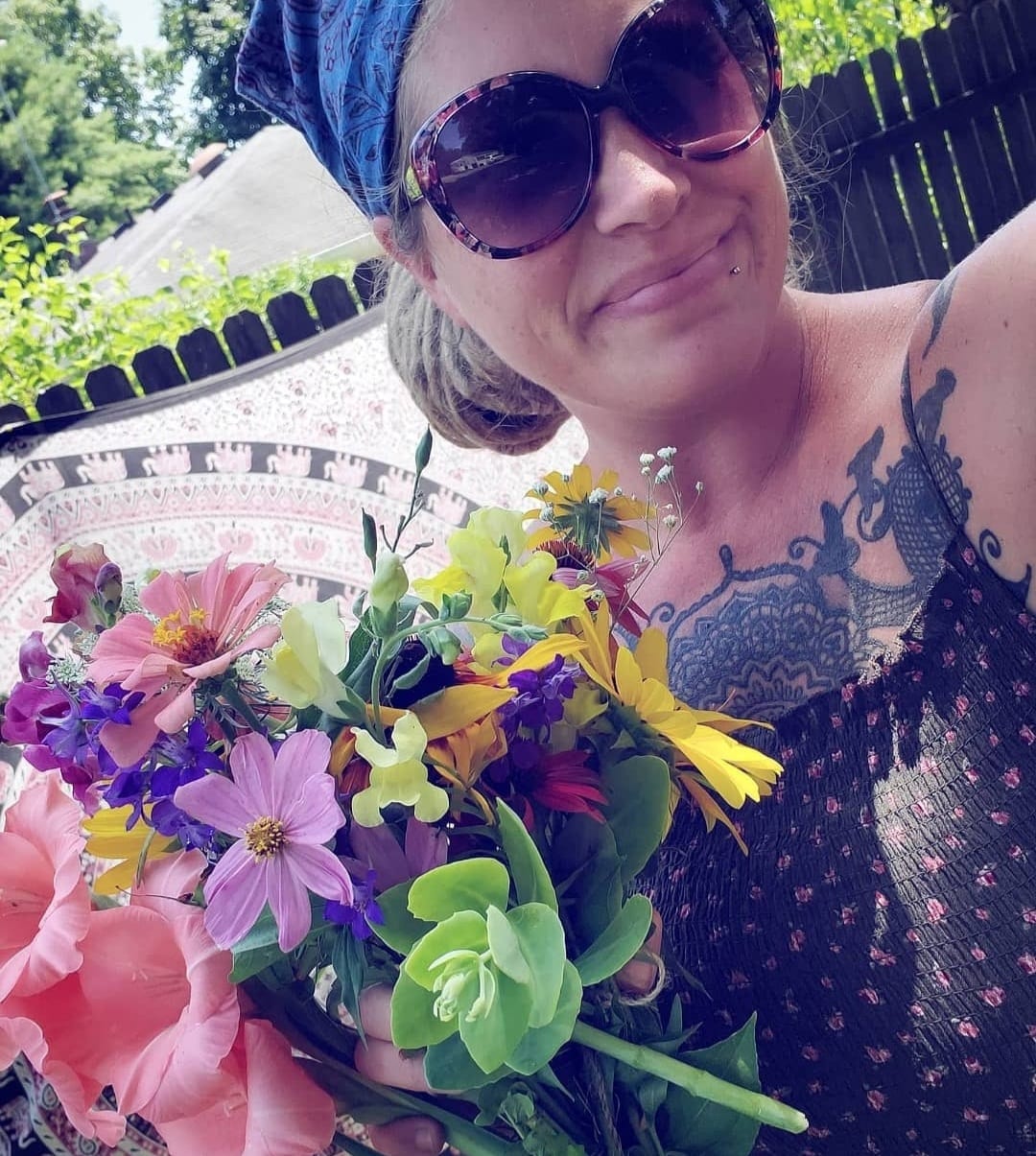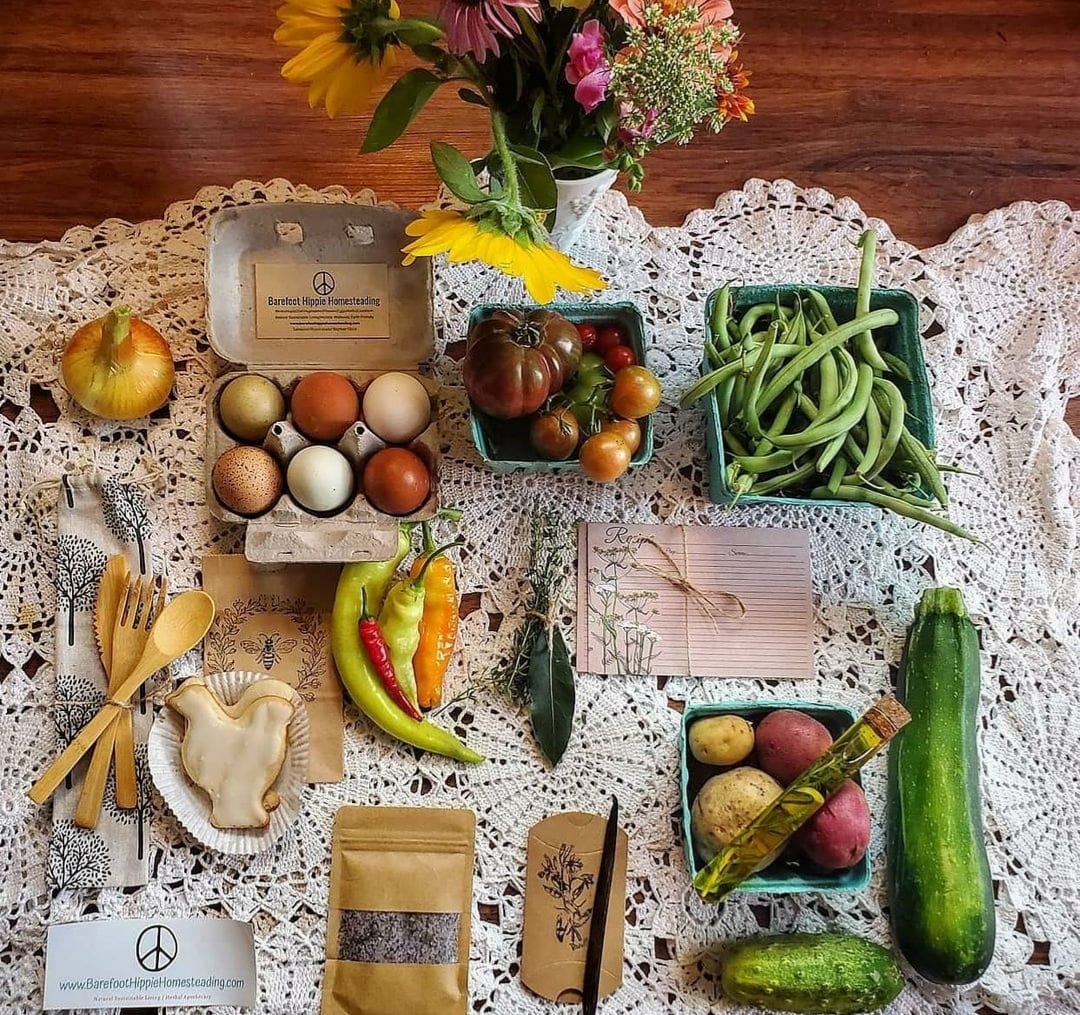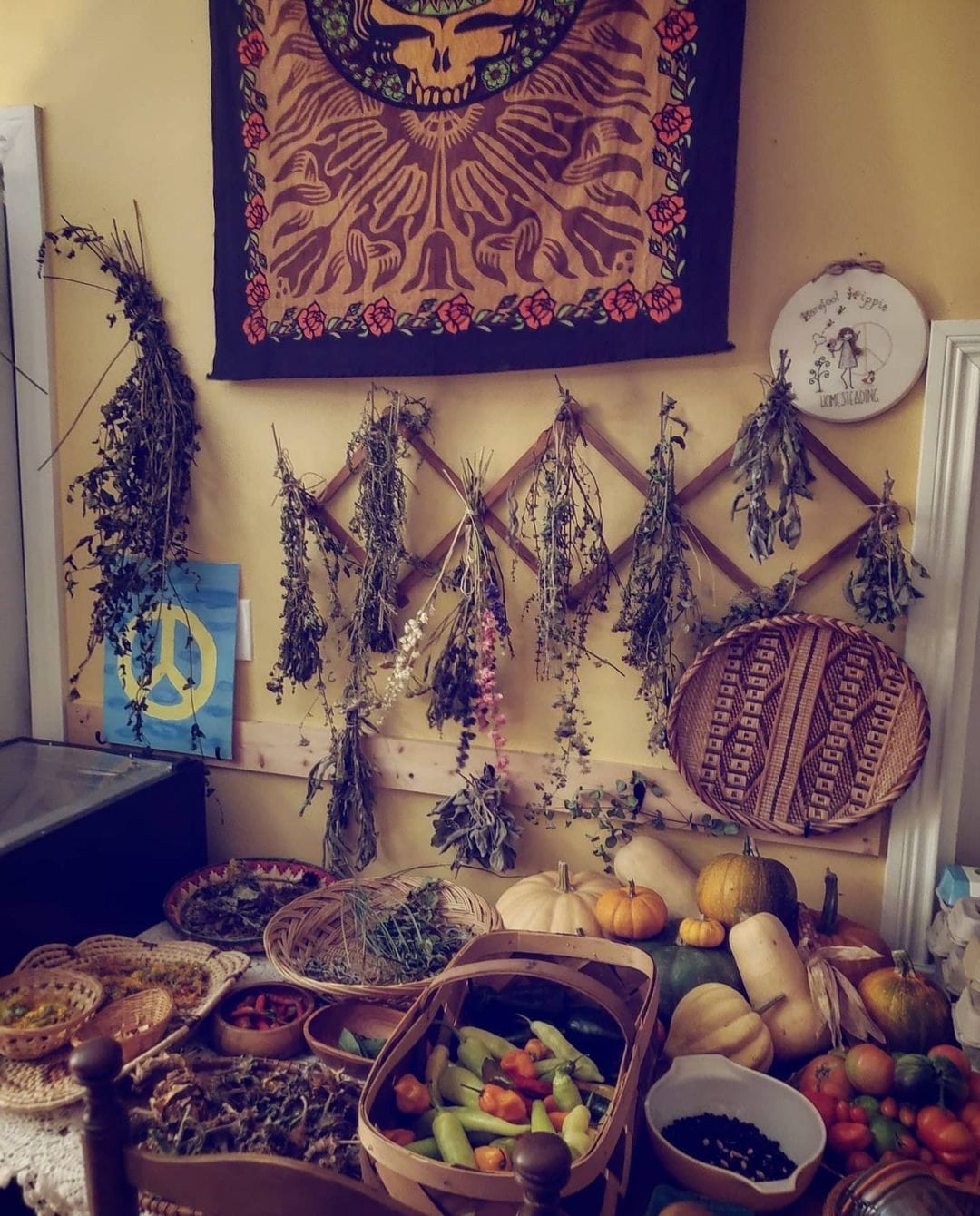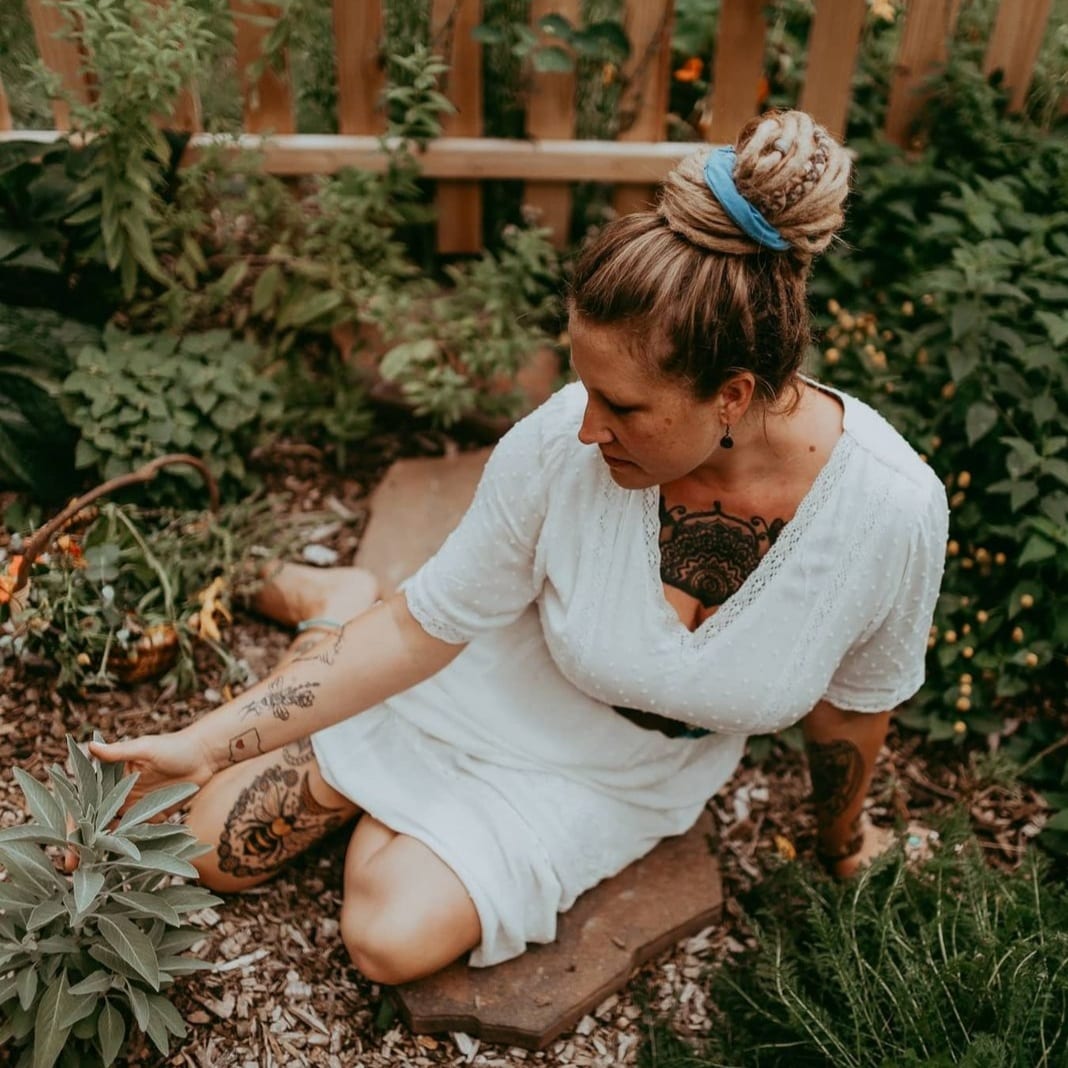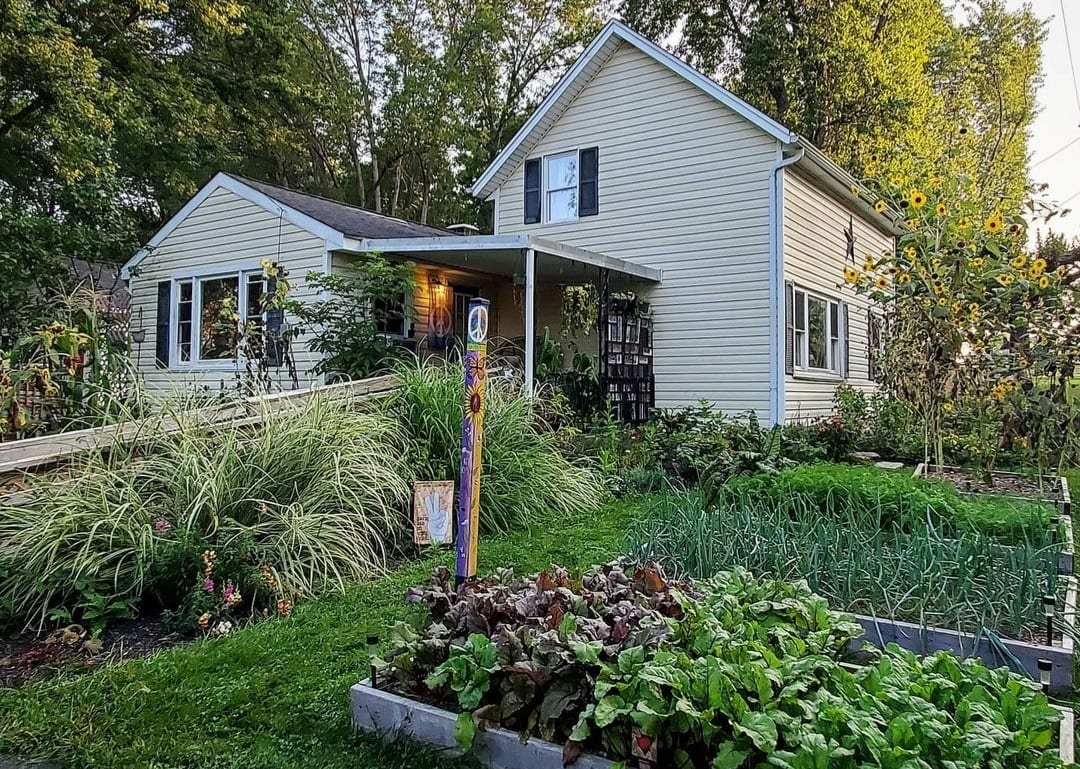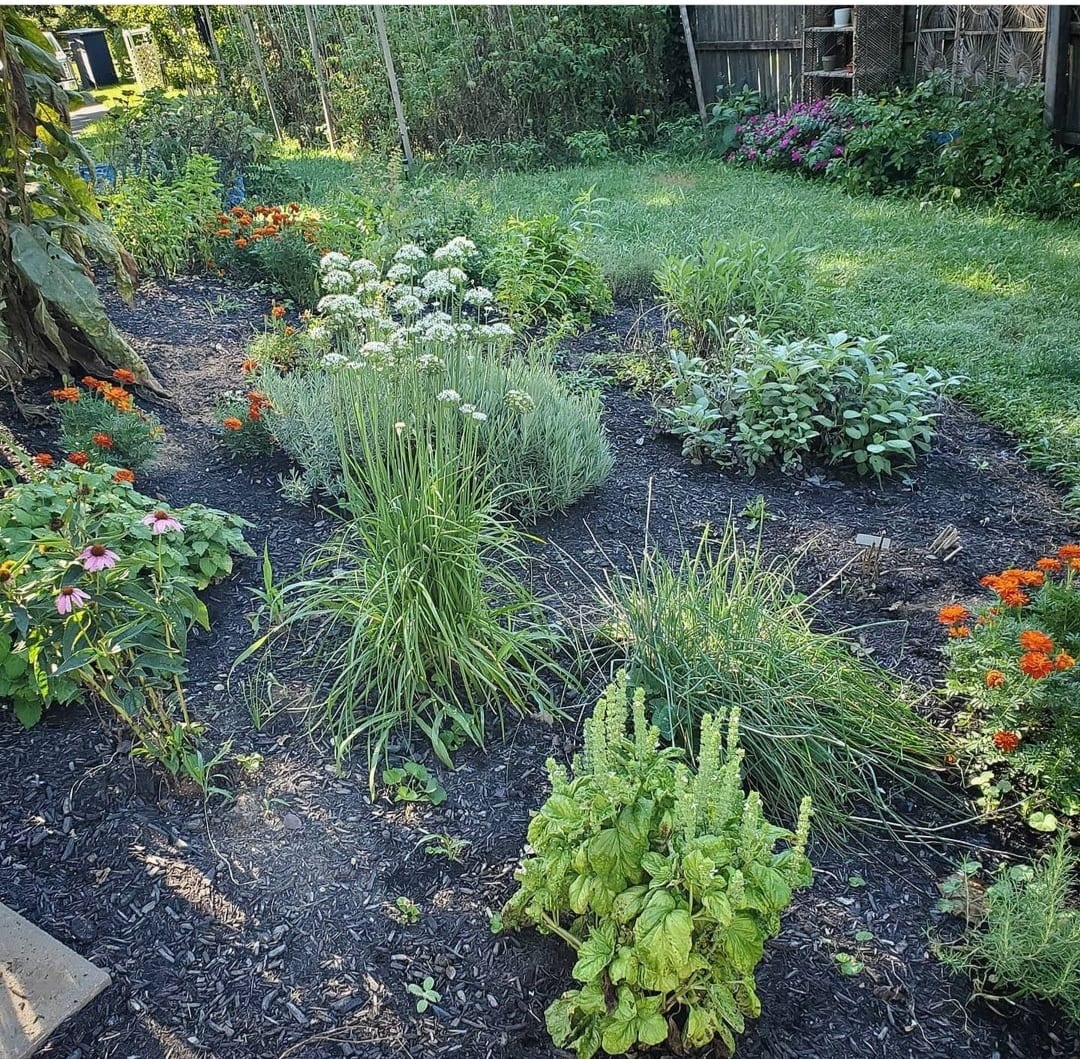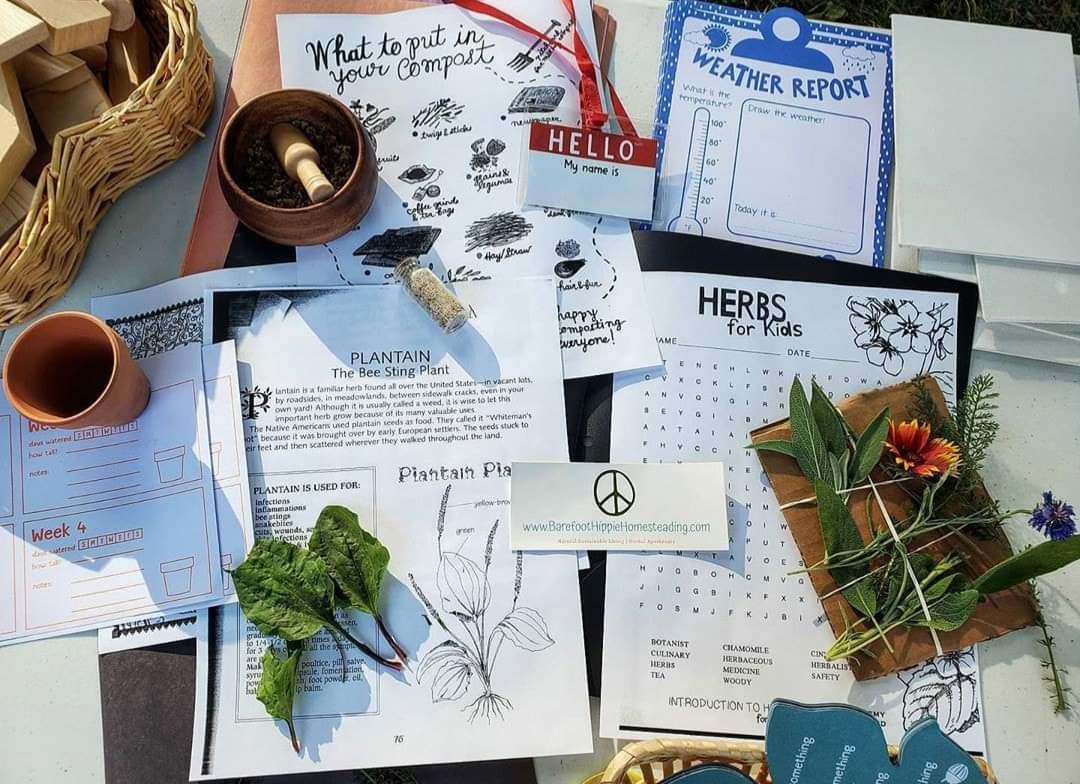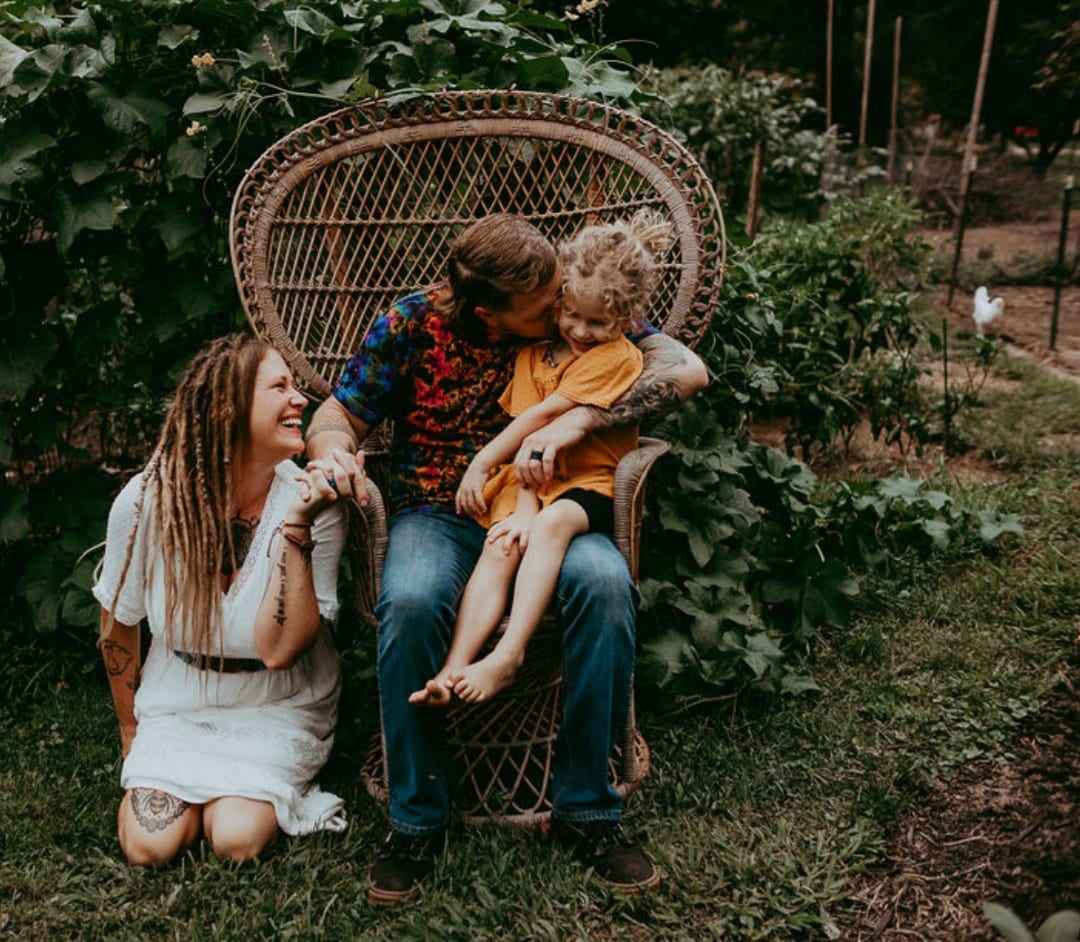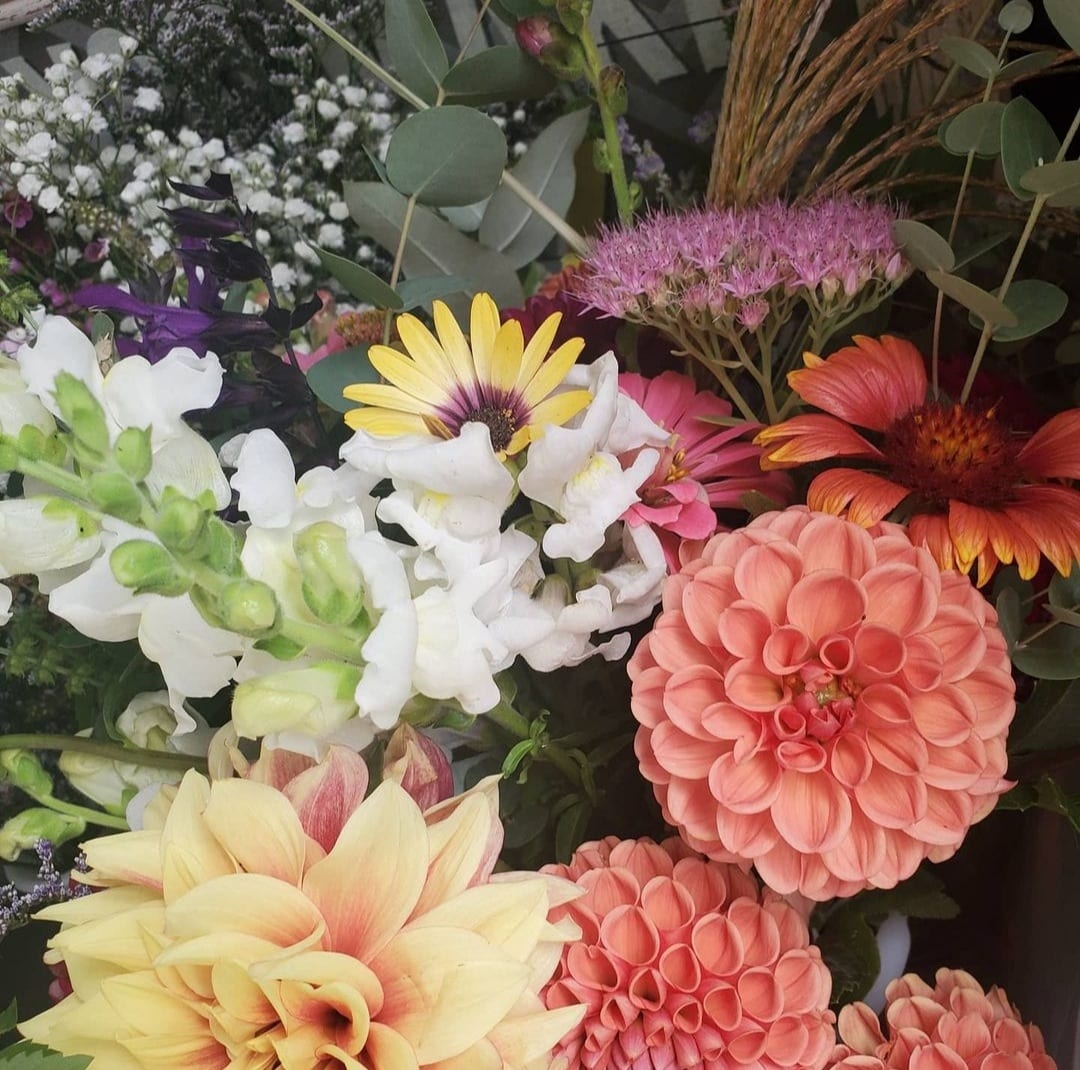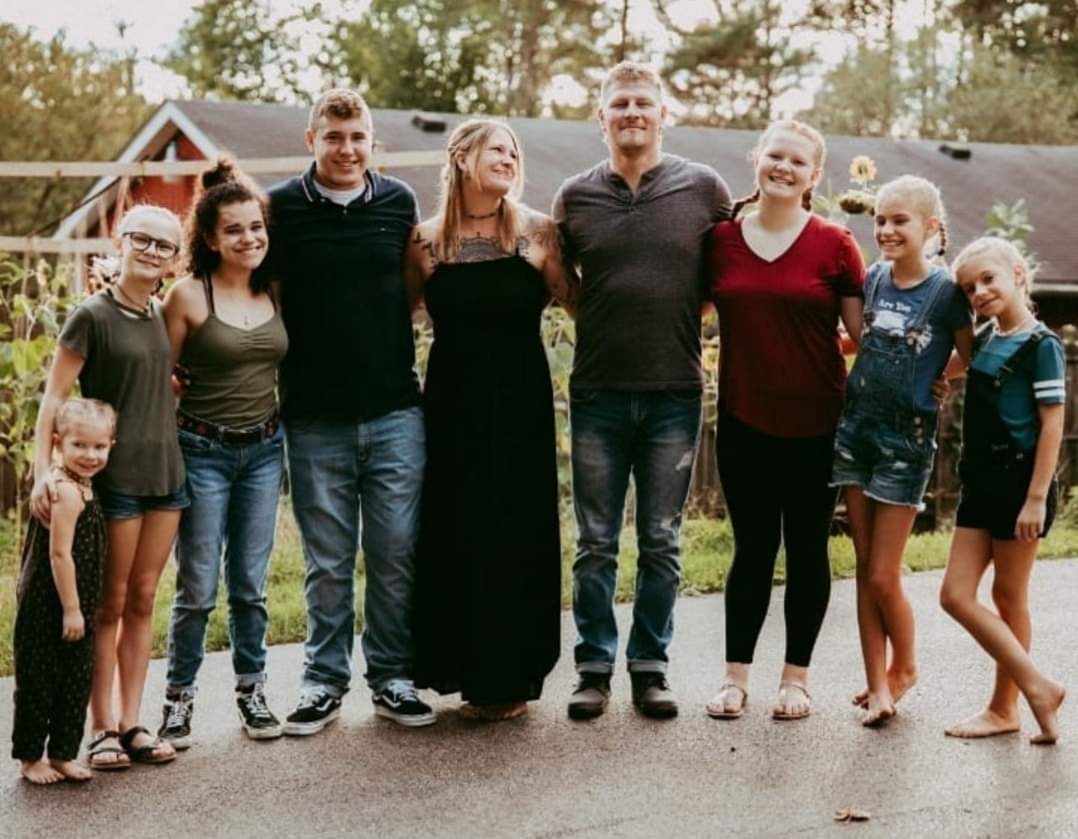
First Generation Farmers Supporting Their Community in Ohio
Meet Mandie Palmer from Lebanon, Ohio, United States
“I am 42 years old and married to my best friend. We are first generation farmers with a large blended family. I love Ohio summers, being barefoot, live music, gardening and my babies. I have a huge drive to help others in our community learn valuable skills for their families. I recently obtained my permaculture design certificate and look forward to learning more about food forestry. Through gardening I found my niche and I have never been more fulfilled with any other job.
I grew up playing in my mom and grandma’s garden. I saw the work and appreciation they had for their harvests. The food just tasted better than anything in the stores. It was hard work and you saw that watching their hands. I knew that one day I wanted that for my children and grandchildren. For my children to remember momma wearing her apron snapping beans, not afraid to get her hands dirty. Encouraging them to get dirty to be outdoors! Once I learned the basics I just ran with it. Growing for our family, neighbors and community.
We grow our own food so we can be less reliant on others in a chain, supplying healthy home grown toxic free foods for our loved ones. We preserve food to have in winter months and in emergencies. We love gathering fresh ingredients from our gardens for our meals. It is so rewarding to see our children take a basket and retrieve specific herbs and vegetables they know by sight and smell. To grow a huge garden by seed and nurture it, watch it grow and thrive and to reap the rewards of that, to gather its seed to share and save to do again the following season, is priceless. We farm so that we can offer the community the ability to know their farmer and participate in that life cycle of their food.
We live in Lebanon, Ohio. (USDA zone 6a) We grow approximately 3000 sqft of various gardens. We live on half an acre! Micro Farming for sure! This spring we are farming a community garden with a local family adding an additional acre of crops.
We use permaculture, organic growing practices. The idea is sustainable agriculture for our children. We obtain cultivation with polycultures. We use chicken and goat manure from our own compost. Companion planting helps a lot. Growing several plant guilds creates beneficial ecosystems. Using plants to offer needed nutrients to other plants naturally or as needed eliminates the need for synthetics. Compost teas, crop rotations and amending the soil helps. Chop and drop ground cover and or the use cover crops provides nutrients. Tilling when necessary instead of routinely is ideal for us.
We save our seed and share seed as often as possible. We rely heavily on seed sovereignty. When we outsource seed we use companies that respect our earth and value our environment, buying locally as much as possible.
Overcoming obstacles can be viewed as valuable experiences. It’s difficult to make mistakes that can’t be remedied until the following grow season. It can be frustrating but it’s rare to make the same mistake twice. Making mistakes means we are learning. We are always learning. Being humble and asking for advice from others is a necessity. No two farmers do it all the same. Learn from the old timers. Tweak it and make it your own.
The rewards from farming have evolved as we have grown. It is the basics of saving money and gaining skills to eating organic yummy foods and teaching others the same. Wasting less and gaining more.This year especially after a year of fear and confusion, uncertainty and resilience we are seeing even more clarity as to why we have chosen this lifestyle. It isn’t easy. Its dedication to our home and land. It’s a sacrifice that seems insane at times. Though farming has saved me. It gives me light at the end of a tunnel. Something to plan for. A future. Our oldest child and only son passed away this past September, suddenly. The last day of summer. My peace lies within my gardens. It is there I am myself. My hands in the dirt bring new life and hope. A reminder that everything that lives is beautiful and valuable yet like the seasons and time, it too must pass.
This is our third year offering our community a unique CSA (Community Supported Agriculture). We provide members with items such as eggs, heirloom veggies, baked items, handmade goods, honey, flowers, herbs, butters and canned items. What makes us unique is including eco-friendly items and pledging to use very little to none non reusable plastics. We add apothecary items including tinctures, syrups, salves, balms, seed, salts, sprout kits, even vintage goods. I teach workshops to offer lessons from herbal identification, and basic uses to food preservation, self sufficiency and beginner homesteading skills. My favorite classes to teach are our kids farm school and apothecary sessions. Children in gardens are incredible examples of planting seed and seeing the excitement and wonder grow and spread. They are enthralled by the sensory involvement of plants. Touching, smellings, tasting, hearing the buzz of the gardens. Through them we entrust our planet and its well being. They learn by example and respect what they love.
We have amazing things planned for this year. We have a community Earth Day clean up and a local seed swap on our calendar. Through our social media platforms we hope to pair aspiring gardeners with eldery and disabled members to offer companion growing. A chance for those with no land the opportunity to grow or even mentors to teach beginners. Every spring we hold a plant sale and offer plant sets and hard to find plant starts. We do offer scholarships as needed for any of our paying events. By collaborating with other local farms and artists we are able to expand or community outreach and offer valuable resources and education. With so many families choosing to homeschool we are creating programs to educate both parents and children on a personal level or in groups.
It is never too late to learn new and invaluable skills. If you have a desire to grow food then grow food. No excuses. Starting a garden can be intimidating. Hone in on a few plants to start. Study 5. Research your grow zone. Plant in pots, on balconies, indoor in grow towers or on windowsills, dig a garden, build a raised bed, create a Hugelkultur. Do not give up. Ask for help. Join forums, find local community gardeners to help. Ask to volunteer at a local farm or CSA. Read. Attend classes. I’m happy to guide you to any resources I have!”
